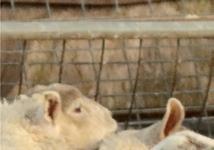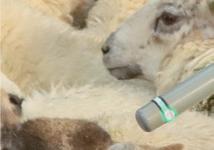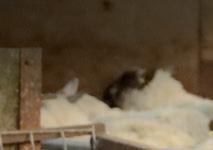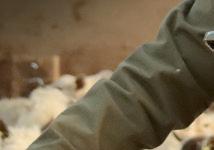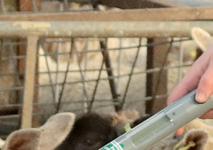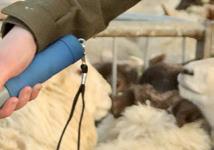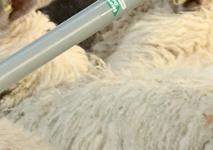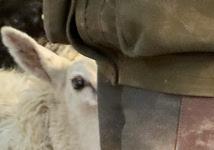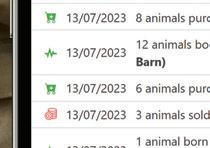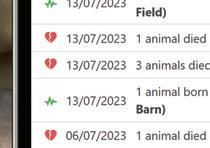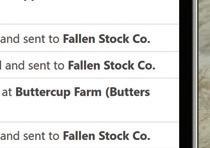LEADER









STORM FORCE




JUDITH RALSTON






•
•























•
•



NFU Scotland, Rural Centre, West Mains Ingliston, Edinburgh EH28 8LT
NFU Scotland, Rural Centre, West Mains Ingliston, Edinburgh EH28 8LT
NFU Scotland, Rural Centre, West Mains
Tel: 0131 472 4000
Ingliston, Edinburgh EH28 8LT
0131 472 4000 www.nfus.org.uk nfuscotland @NFUStweets
www.nfus.org.uk nfuscotland @NFUStweets

HTel: 0131 472 4000 www.nfus.org.uk
Editor Diana McGowan editor@nfus.org.uk
Editor
OW often do you see or learn about something and think ‘I’m up for that’, but then never actually positive thought/ silent commitment? Possibly too often or not at all.
nfuscotland @NFUStweets
Diana McGowan editor@nfus.org.uk
Design & Production Mark Shreeve mark.shreeve@micropress.co.uk
Andrew Hirst andrew.hirst@micropress.co.uk
Managing Editor
Craig Gibson
EditorAdvertising Sales
Design & Production
Diana McGowan editor@nfus.org.ukWes Stanton 01502 725866 wes.stanton@micropress.co.uk
Ryan Swinney
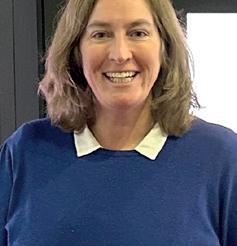
HIn this month’s magazine, our two features cover inspiring stories and highlight just how rewarding delivering on such thoughts can be both for the individual involved and others who may benefit along the way.
OW often do you see or learn about something and think ‘I’m up for that’, but then never actually realise that positive thought/ silent commitment? Possibly too often or not at all.
Daniel Rice 01502 725858 daniel.rice@micropress.co.uk
Advertising Sales
Managing Editor
Craig Gibson
Mat Roffey 01502 725854 mat.roffey@micropress.co.uk
Clare Stebbing clare@connect communications.co.uk
Tel: 0131 561 0024
Design & Production
Ryan Swinney
Mark Tait 01502 725803 mark.tait@micropress.co.uk
Published on behalf of NFU Scotland by Connect Publications (Scotland) Ltd.
Advertising Sales
Published on behalf of NFU Scotland by COUNTRYWIDE PUBLICATIONS
Clare Stebbing clare@connect communications.co.uk
Studio 2001, Mile End, 12 Seedhill Road, Paisley PA1 1JS
Tel: 0131 561 0024
Fountain Way, Reydon Business Park, Reydon, Suffolk IP18 6SZ 01502 725800
Printed by MICROPRESS PRINTERS LTD
Fountain Way, Reydon Business Park, Reydon, Suffolk IP18 6SZ 01502 725800
Published on behalf of NFU Scotland by Connect Publications (Scotland) Ltd.
Studio 2001, Mile End, 12 Seedhill Road, Paisley PA1 1JS

nother busy month has rushed by, and it’s been great to be out and about at a monitor meeting to learn about smart technology, attend the national conference, AGM and annual dinner in Glasgow, and on another day to visit BBC Scotland. On each occasion I ventured ‘further afield’ I did so in rather stormy conditions! Since October we really do seem to have been battered by storm after storm. (At the time of writing we’ve had ten named storms.) I was therefore grateful to have the opportunity to catch up with Judith Ralston from BBC Scotland to ask her more about what was happening and why. You can read my report on pages 30-34 of this issue.
In this month’s magazine, our two features cover inspiring stories and highlight just how rewarding delivering on such thoughts can be both for the individual involved and others who may benefit along the way.
We’re only a few weeks away from the Royal Highland Show. Over the course of four days, thousands will flock to the show to compete, judge, exhibit, organise, educate and socialise. We’ll see the best of the best and relish the atmosphere. Among the highlights and away from the main show ring, this year will see the welcome return of the Golden Shears Sheep Shearing and Woolhandling World Championships. Taking place at the MacRobert Theatre, the 2023 Worlds will see more than 30 countries compete for the prestigious title and it promises to be an action packed showcase of the art, skill and techniques required to be a world champion.
Perhaps a less well known event taking place at this year’s Highland is the final qualifying round of the 2023 Britain’s Fittest Farmer competition. Taking part in this event for the first time is Kyla Graham from Kirkcudbrightshire. Kyla first spotted the event at the Show last year and while watching it thought ‘I’m up for that’. Kyla knew however she couldn’t just enter there and then. Like any competition, she understood you need to be ready for it and without knowing if she would even enjoy it, she set her mind to it to finding out if she would. Kyla shares her journey from that moment to the present and highlights how she’s benefited already in so many ways both mentally and physically, and explains about the positive impact her preparation has had on her working life.
We’re only a few weeks away from the Royal Highland Show. Over the course of four days, thousands will flock to the show to compete, judge, exhibit, organise, educate and socialise. We’ll see the best of the best and relish the atmosphere. Among the highlights and away from the main show ring, this year will see the welcome return of the Golden Shears Sheep Shearing and Woolhandling World Championships. Taking place at the MacRobert Theatre, the 2023 Worlds will see more than 30 countries compete for the prestigious title and it promises to be an action packed showcase of the art, skill and techniques required to be a world champion.
As ever, the conference and annual dinner were great opportunities to mingle with other members and meet many news ones. Thank you to all those who took time to speak to me and provide some feedback on how Scottish Farming Leader is delivering for you. I really appreciate it and do take on board your suggestions. The fact you are reading it is always the biggest compliment and I do share this with my colleagues who, month on month, provide a snapshot of what they have been doing on your behalf –it is very much a team effort.
The conference, AGM and dinner, was a packed couple of days that focused on ‘the role of the market and related supply chains in supporting a profi table and sustainable agriculture sector.’ Around 400 delegates packed the conference room on each day to listen to the host of knowledgeable speakers who shared their thoughts and intelligence from across the industry. And, of course, we were delighted to have representatives from the UK and Scottish Government address the conference too. There’s a brief summary of the event on pages 11-15 but do remember to check our website for more detail and access recordings of the presentations.
In this month’s issue, there is also a guide to Species Management from, Policy Manager, Penny Middleton (see page 17-19). This is designed to provide you with a quick reference point that will help you navigate your way through the complexities of wildlife legislation, and keep you on top of all you can or can’t do to control the species causing you problems.
The other feature looks at how a casual conversation during a Christmas lunch turned into the most rewarding and humbling experience for Next Generation Chair, Matthew Steel, one of the many volunteers who have recently delivered much needed 4x4 vehicles to Ukraine to support the war effort. Matthew explains his contribution to the ‘Pickups for Peace’ campaign and reflects on how the unexpected reception received from the Ukrainians has impacted him and those who were involved.
If you are looking to purchase some new machinery this year visit pages 43-46 where you can double check what’s new on the market and weigh up what may be the best way to make any purchase for you and your business.
Perhaps a less well known event taking place at this year’s Highland is the final qualifying round of the 2023 Britain’s Fittest Farmer competition. Taking part in this event for the first time is Kyla Graham from Kirkcudbrightshire. Kyla first spotted the event at the Show last year and while watching it thought ‘I’m up for that’. Kyla knew however she couldn’t just enter there and then. Like any competition, she understood you
I hope the weather stays fair to enable you to get through all your essential, early spring, work. It is lovely to see all the new life and shoots beginning to appear in the fields and the daylight hours extending.
Finally, as we head towards the longest day, with the hope of some warmer weather on the horizon, I hope you’re remembering to dress for the weather and wear protective sunscreen and hat when you’re out and about. The strength of the sun even on a dull day can prove harmful if exposed without protection. If you need a new baseball cap, visit the NFU Scotland website and purchase one from the branded merchandise in the Members’ Benefits section.








The other feature looks at how a casual conversation during a Christmas lunch turned into the most rewarding and humbling experience for Next Generation Chair, Matthew Steel, one of the many volunteers who have recently delivered much needed 4x4 vehicles to Ukraine to support the war effort. Matthew explains his contribution to the ‘Pickups for Peace’ campaign and reflects on how the unexpected reception received from the Ukrainians has impacted him and those who were involved.
“We’ll see the best of the best and relish the atmosphere”
Finally, as we head towards the longest day, with the hope of some warmer weather on the horizon, I hope you’re remembering to dress for the weather and wear protective sunscreen and hat when you’re out and about. The strength of the sun
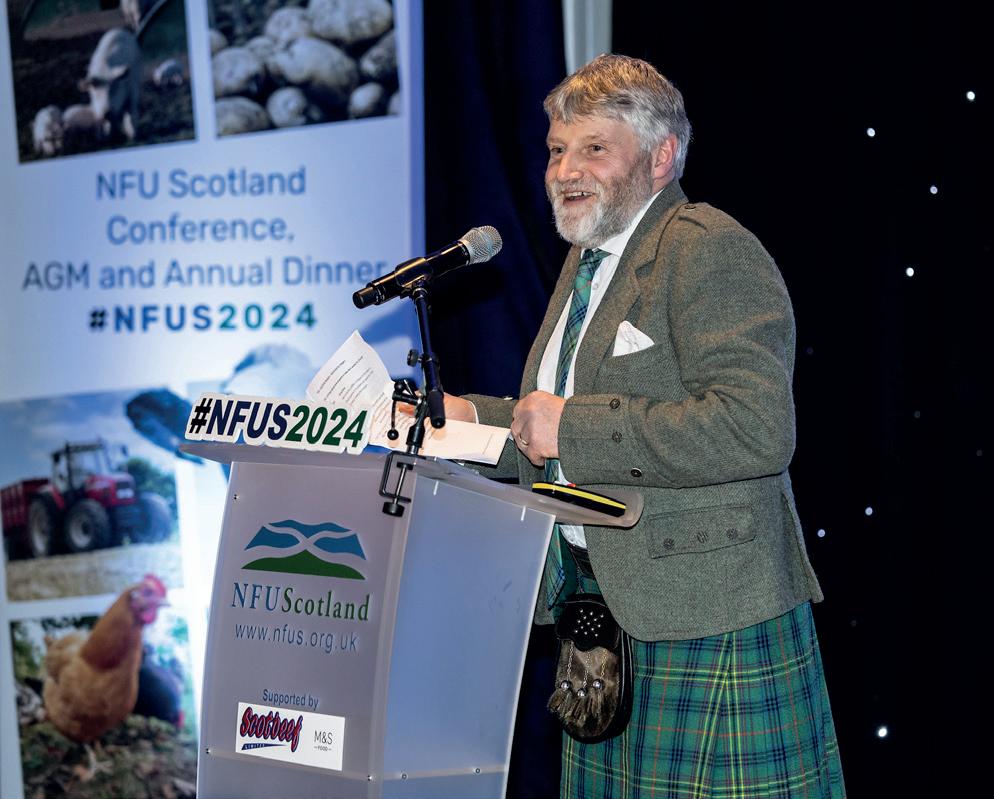
Another year and another AGM gone by and what an event it was.
Congratulations to Andrew Connon for being formally re-elected for another year. I look forward to again working with both Andrew and Alasdair as I enter my last year as President of NFU Scotland.
With the whole theme being around profitability and market returns, the presentations received from all the speakers highlighted where we can do more with collaboration and co-operation. And also, how sometimes we just have to say ‘No’ when it comes to demands that costs us money for no reward.
There’s no doubt that a major highlight at the conference was the keynote address by First Minister Humza Yousaf, who was also accompanied by Cabinet Secretary Mairi Gougeon on stage. Having both the First Minister and the Cabinet Secretary present at our conference to take questions from the floor endorses the gravitas of such an event. This engagement with the industry is absolutely vital and highlights exactly why NFU Scotland must continue to have a constructive albeit sometimes very critical dialogue with the highest level
of politicians and decision makers. That dialogue over a long period of time has now resulted in key statements that positively recognise all what farmers and crofters bring to the table. Not just with food but all they deliver for the environment, climate and the rural economy.
Obviously, we will have to do more in terms of management to maintain that direct support in the future
I certainly welcome many of the First Minister’s comments. His commitment to maintaining current levels of support up to 2027 and maintaining at least 70% of support as direct support beyond that will give some confidence back to the industry. Also, his commitment to maintain schemes for disadvantaged areas on top of this as well as coupled support for sectors such as beef and sheep.
This was the third time I had met the First Minister since he came into post. His current language around production, growth, exports and value has certainly sent a message that he has been listening to both our concerns and our ambitions for a profitable and sustainable industry.
I also think now he has bolstered the Cabinet Secretary’s role by appointing a Minister for Agriculture and Connectivity with an agricultural background, shows he now realises how important this industry is. The food and drink sector is the biggest part of the Scottish economy, so to now have that understanding at the highest political level in Scotland can only be taken as a positive.
Obviously, we will have to do more in terms of management to maintain that direct support in the future, but provided listening to the industry is maintained, and we can still secure a meaningful budget from Westminster, agriculture in Scotland now has the opportunity to be globally renowned for its highquality food and all it delivers for the environment and the economy.
Finally, a massive thank you to the whole NFU Scotland team whose organisational skills made it an AGM, dinner and conference to remember.

“Investing in early life nutrition, by Feeding More Milk, optimises lifetime daily yield, key to improving sustainability in farming and reducing carbon footprint.”
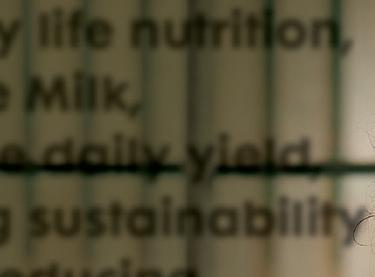
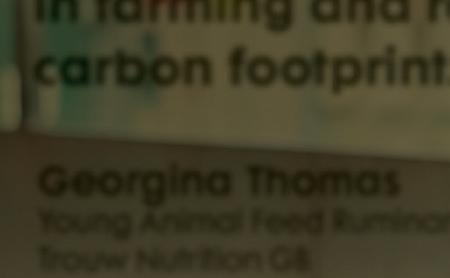
Georgina Thomas Young Animal Feed Ruminant Manager Trouw Nutrition GB

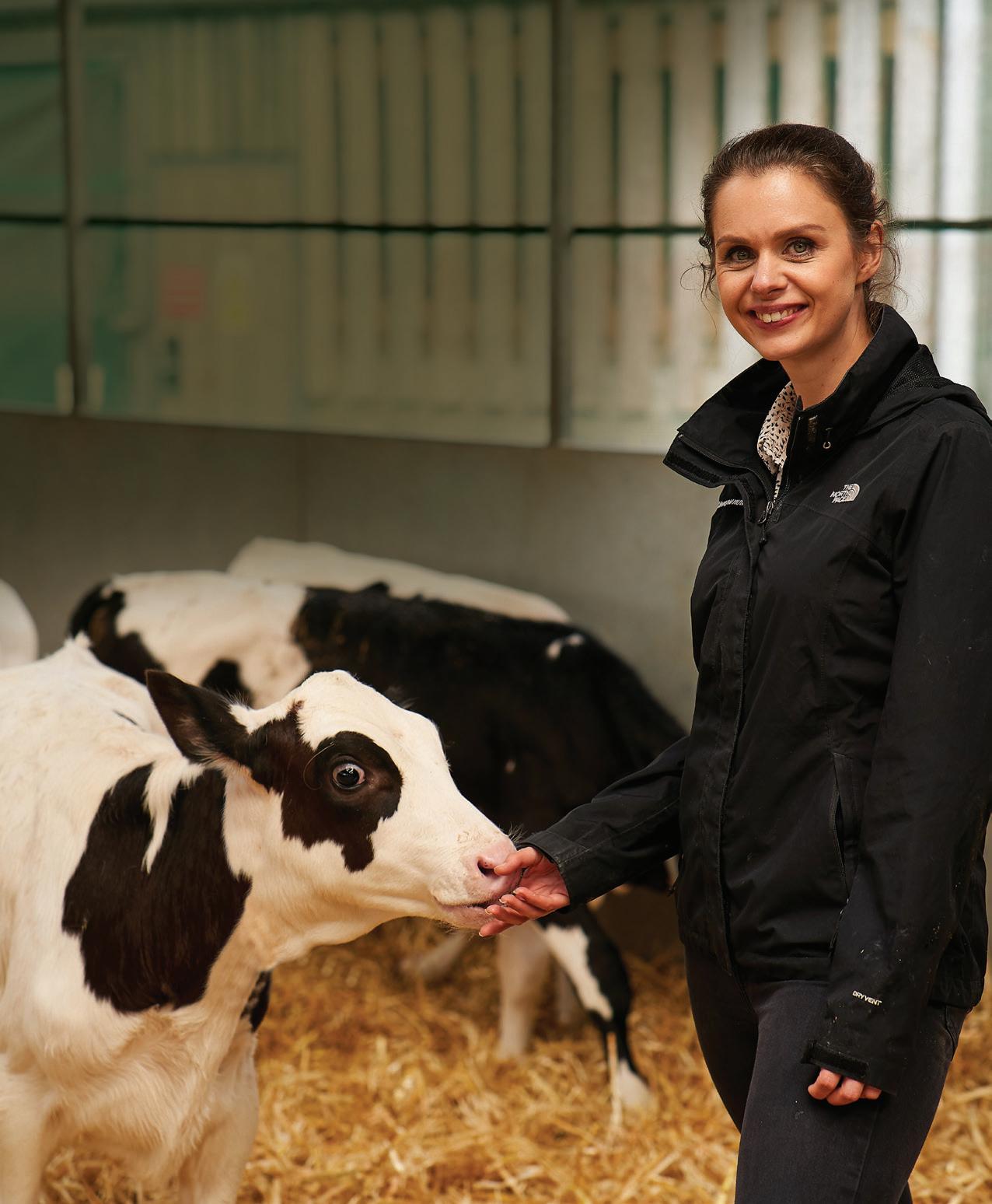


Following the announcement that trade talks between the UK and Canada have been halted over hormone treated beef gaining access to home markets, President Martin Kennedy said: “This is the fi rst time under any of the post-Brexit FTAs that the UK Government has held the line on existing market access barriers for agri-food products and it must mark a permanent change in attitude from the Government. Until now, the Government’s track record on post-Brexit Free
Trade Agreements to date is one of failure. It failed to protect Scottish farming interests, failed to properly engage with stakeholders and failed to provide Parliament with proper scrutiny on such deals once agreed. Post-Brexit trade deals with major agricultural and manufacturing economies like Australia and New Zealand saw our agricultural interests and access to our food and drink sector used as cheap bargaining chips to secure what is seen as more lucrative market access for
other sectors. There was little or nothing in such trade deals for Scottish food or farming. With Australia and New Zealand completed; domestic producers are increasingly exposed to being undermined by growing volumes of produce derived from very diff erent agricultural systems that operate with very diff erent cost structures with little in return. This robust approach on a Canadian deal is something that both Defra and the Department for International Trade must permanently adopt in the future.”
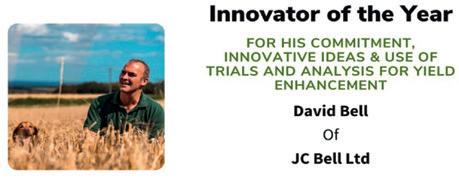
Congratulations to all the Scottish winners of 2023 YEN awards. There was a silver and bronze award for Annabel Hamilton in Berwickshire and Martin Lawrie of Angus, with Martin and David Fuller in Berwickshire taking Scottish
cereal yield awards. There were winter barley titles for Neil Ramsay, Berwickshire, oats and seed awards for Annabel and spring barley awards for David Steel. The YEN particularly seeks to celebrate innovators. In 2023 it gave special recognition through
the YEN Innovator of the year award to well-known Scottish grower Dave Bell. David was nominated for his commitment, representation, innovative ideas, and use of data and trials for yield enhancement and crop nutrition. Congrats David.
Congratulations to Andrew Moir who received the 2024 Ed Rainy Brown Memorial Award at this year’s SAOS Conference Dinner in recognition of his many years of co-operation and collaboration in farming, food, and rural Scotland.
Announcing Andrew as the award winner, SAOS Chairman John Hutcheson related how Andrew has served the Scottish farming industry in a host of different ways over many years, including as Chair of SAOS members, Ringlink Scotland Ltd and Scottish Quality Crops, and Vice-Chair of the Scottish Machinery Rings Association. He is a fellow of the Royal Agricultural Society and is also Honorary President of Fettercairn Show.
Commenting on Andrew’s award, Martin Kennedy said: “It is an absolute pleasure to see one of the industry’s true stalwarts receive this award from SAOS and NFU Scotland given the huge shift that Andrew has put in on behalf of both organisations and the wider farming sector.
“At NFU Scotland, Andrew has, over more than 30 years, represented members locally, regionally, and nationally. He initially represented his region on the head offi ce committee for milk before many years’ service representing the North East on combinable crops, a committee he went on to chair for three years. Andrew was also the NFU Scotland nominee to chair the Voluntary Initiative in Scotland from 2015 to 2020, driving forward the responsible use of plant protection products.
“He had a fundamental role, under his chair, in developing AgriScot into the leading winter event in Scotland. More recently, Andrew’s knowledge and skills have proven invaluable as we seek to ensure post-Brexit agricultural policy in Scotland refl ects the needs of the cropping sector while, under his chair, the nation’s quality assurance scheme for crops, SQC, places our growers at the premium end of UK and European markets.”
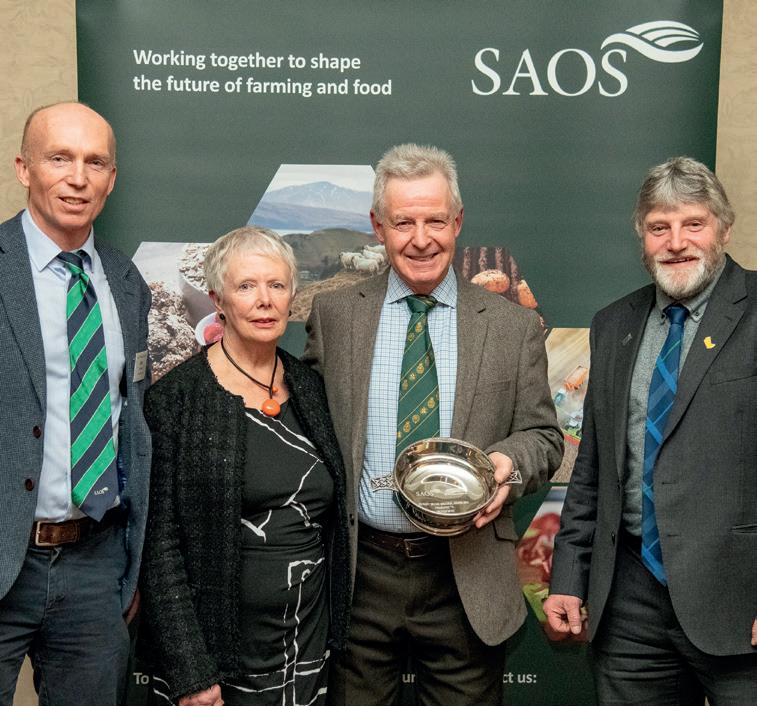




The contribution of the Scotch Whisky industry to the UK economy reached £7.1bn in 2022. A recently published report by the Scotch Whisky Association (SWA) also reveals the industry supports 66,000 jobs across the UK, of which 41,000 are in Scotland. The Scotch Whisky industry is the second most productive sector in Scotland, ranked just behind energy including renewables.
Unfortunately, neither the report nor the news release from the SWA noted the contribution of farmers to this success story. Combinable Crops Committee Chair, Willie Thomson said: “NFU Scotland welcomes this report, which highlights the huge and growing contribution that the whisky sector makes to Scotland’s economy. Scotland’s most iconic brand, Scotch whisky, is made up of just three ingredients – water, yeast, and cereals –and Scotland’s arable farmers are the cornerstone of the sector. As such, this report could have done more to directly recognise that the success of the Scotch whisky industry is reliant on the success of Scottish cereals growers - and vice versa ¬- and long may it continue to the mutual benefi t of both. The role of farmers should be recognised, not least because of the increasing demands being placed on growers as they assist all parts of the whisky production chain in meeting their requirements around emission reductions and Net Zero commitments.”
On the eve of our AGM, we said ‘goodbye’ and ‘thank you’ to several members of the Board of Directors who were stepping down namely:
Region Board ChairsCaroline Millar (East Central), Debbie Playfair (Lothian and Borders), Alan Simpson (North East) and Colin Ferguson (Dumfries and Galloway).
Committee Chairs - Willie Thomson (Combinable Crops), Matthew Steel (Next Generation) and Iain Brown (Horticulture).
President Martin Kennedy thanked each and everyone of them for the tremendous service that each has given to their region or sector in particular, and the industry in general. Each received a beautiful bespoke drawing to remind them of their time on the board.
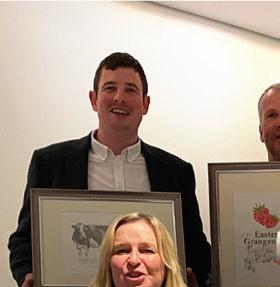
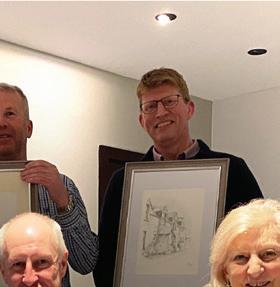

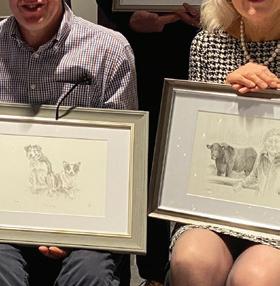


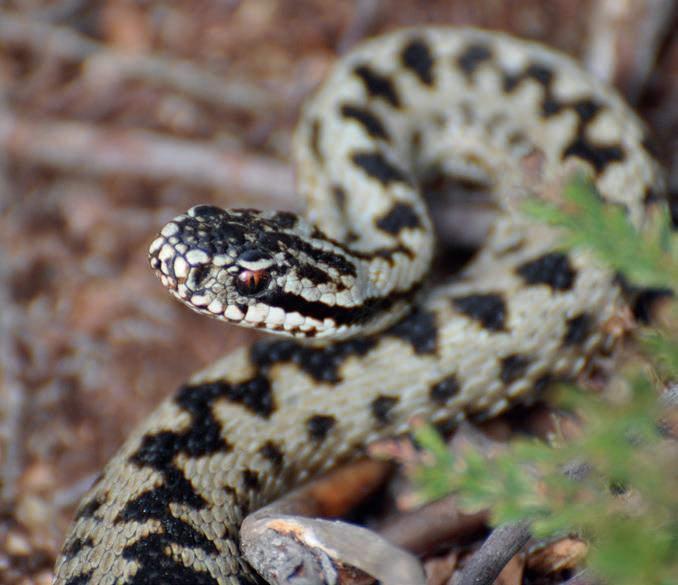
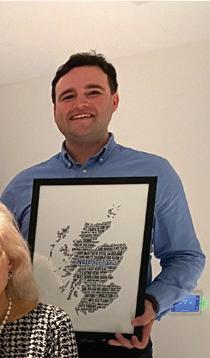


NatureScot is looking to reach farmers, landowners, crofters, land managers etc. from across Scotland to provide information about adders (and other reptiles) that they may or may not have found on their land. The survey does not require participants to go out and look for anything, only to report what they have seen (or not seen) historically.
The survey will take about 10 minutes to complete and is completely anonymous. The only thing that’s required is your location information. To take the survey visit
https://www.nature.scot/doc/scottishadder-survey. It is open until 31st March 2024.



Our Farm Business Consultancy team provides a range of services including strategic farm business management, evaluation of subsidies and grant applications (IACS/SAF) and ongoing advice relating to the new subsidy regime, including carbon auditing and nutrient planning.
Galbraith has expanded its Farm Business Consultancy team to continue to support and advise existing and new clients throughout the UK through the uncertainty surrounding the future subsidy regime and fluctuating commodity prices.
Our rural team now numbers 78 staff covering land and farm sales, land use management, forestry, natural capital and biodiversity, renewable energy, utilities, tenancy negotiations, farm valuations and property advice for landowners throughout Scotland and across the North of England.
NFU Scotland have joined forces with Anglo Scottish Asset Finance to create NFU Scotland Finance.
As NFU Scotland Finance, Anglo Scottish are committed to providing NFU Scotland members with tailored Commercial finance and Asset Finance solutions to help them achieve their growth and diversification objectives.





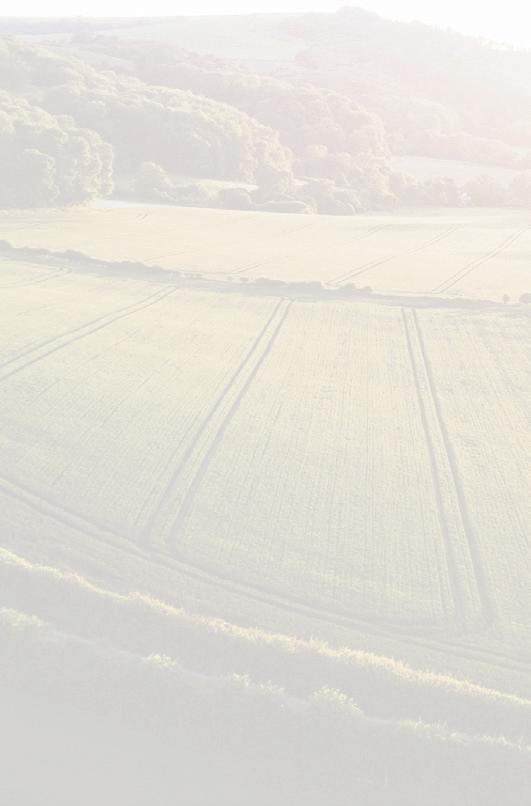

















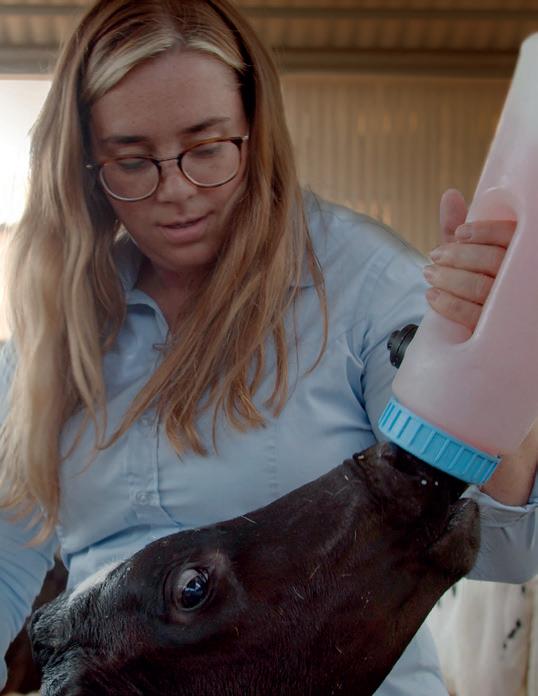
“Hydration of calves with OsmoFit is easy and key to maintaining health, performance and growth.”


Dr.
Laura Tennant
Young Animal Feed
Technical Adviser
Trouw Nutrition GB

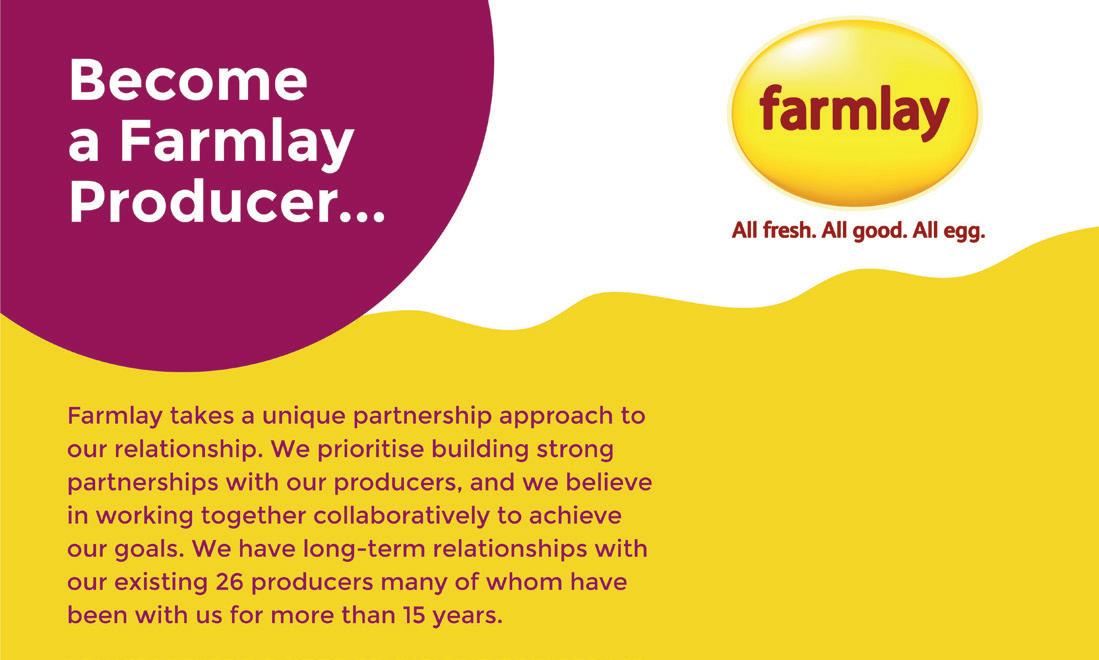
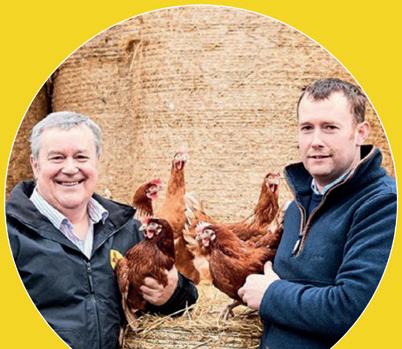
The 2024 NFU Scotland national conference, dinner and AGM was packed with activity, discussion, debate, awards, delicious food, lively entertainment and socialising. The following is a brief summary of some of the highlights. More information and recordings of sessions can be found on the NFU Scotland website.
NFU Scotland welcomed the funding commitment to future Scottish agricultural policy made by First Minister Humza Yousaf MSP when he addressed more than 400 delegates. He informed delegates that funding for Tiers 1 and 2 will constitute at least 70 percent of the overall funding envelope to support farming, crofting and land
management from 2027. These are the tiers that will reflect most closely the current direct payment regime that delivers schemes such as Basic Payment Scheme and Greening.
The First Minister also announced that funding for the replacement for the Less Favoured Areas Support Scheme, currently worth £65 million, will be made available through Tier 2 once the replacement scheme has been decided.
Scottish Government has published the FM speech online at www.gov.scot/publications/nfusconference-2024-first-ministerkeynote-speech/
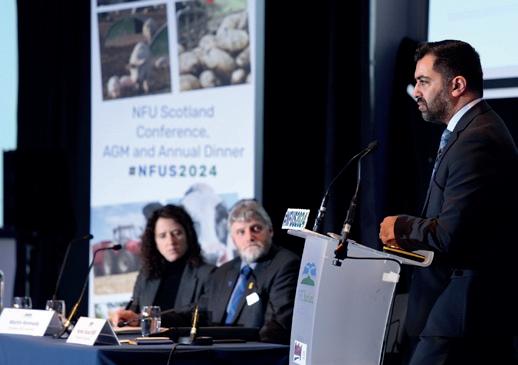

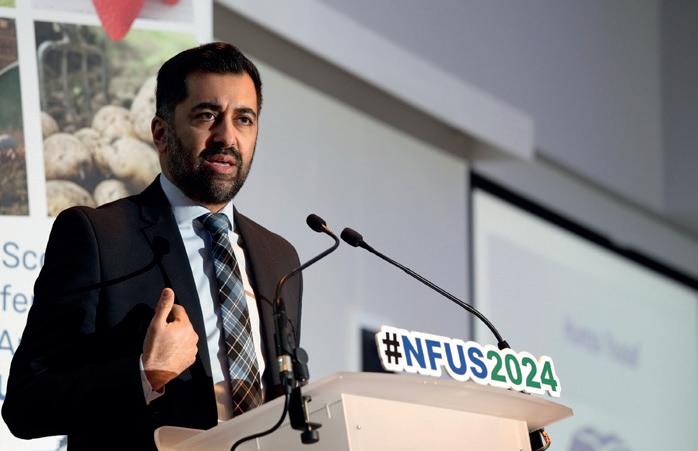
On the eve of the conference, Jim Fairlie MSP, was announced as the new Minister for Agriculture and Connectivity. Members and staff had an opportunity to meet with the First Minister and Mr Fairlie at the event.
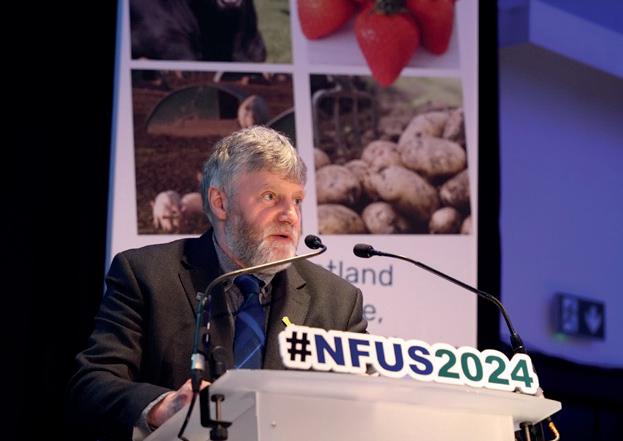
In his address to the conference, President Martin Kennedy highlighted five key asks of Governments, retailers and consumers.
• First of all, an enhanced budget for agriculture on a multi annual financial framework to be delivered into the rural economy in a manner that rewards fairly.
• Secondly, to push a Scottish first programme when it comes to public procurement of food and drink.
• Thirdly, to fully return the £61m of unallocated funds as a matter of urgency to the rural portfolio.
• Fourthly, to enable fairness throughout the whole supply chain.
• And last but certainly not least for the sake of our economy and the environment, Scrap the Bute House agreement.
Recognising that this will be a General Election year, Mr Kennedy unveiled plans for a national hustings event where the UK agricultural spokesperson from each party would be invited to attend and state their vision for Scottish farmers and crofters. A full copy of the Presidential address is available in the Blog section of our website.
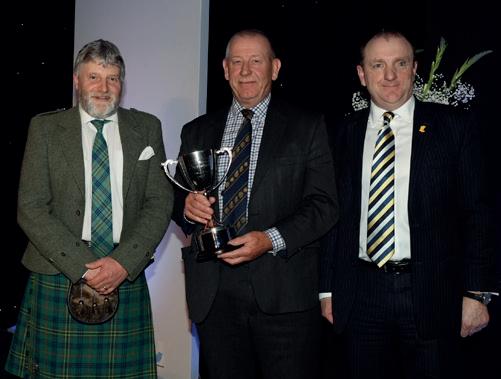
The Ambassador Award which recognises those who have excelled at representing the nation’s agricultural and food industries was awarded to Ian Davidson OBE.
Ian was previously the Principal Agricultural Officer in Scotland for six years before becoming the Head of Agriculture Policy Division at Scottish Government. He held this role until 2019 before becoming National Advisor to the Scottish Land Matching Service. His advice and guidance is highly respected and valued by Ministers, politicians, government officials, stakeholders, and grass roots farmers and crofters.
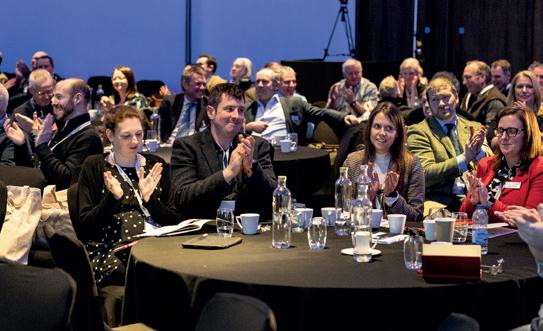
Initial analysis of the research undertaken on behalf of NFU Scotland has revealed which supermarkets are stocking Scottish produce, providing the Union with a clearer picture of what and where consumers are able to purchase locally produced goods.
Over a 48-hour period in late January, an independent research firm visited 71 stores across mainland Scotland. Researchers looked at beef, lamb, pork, chicken, eggs, vegetables and dairy products (milk, cheese, butter and yoghurt) on offer in Tesco, Asda, Morrisons, Sainsbury’s, CoOp, Marks and Spencer, Lidl and Aldi stores. In all over 15,000 own brand products were reviewed. Researchers reviewed the country of origin of products being offered by the stores’ own brands to identify if they were Scottish, British or imported. Planned ShelfWatch’s in the future will look at branded and seasonality. A summary of the results is available at end of news release available in the news section of our website.

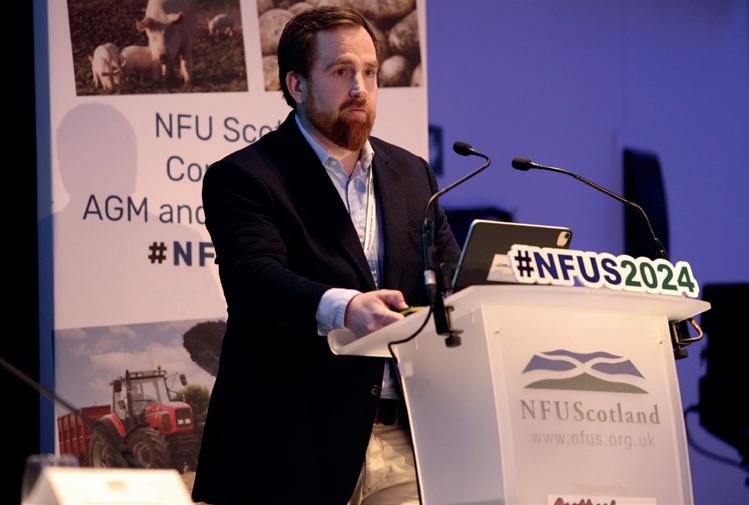
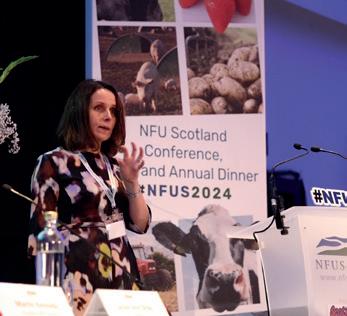
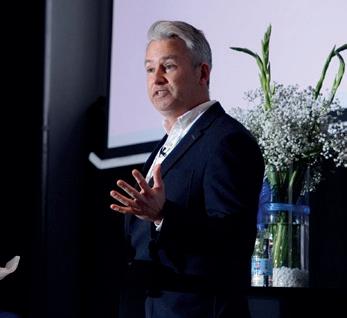
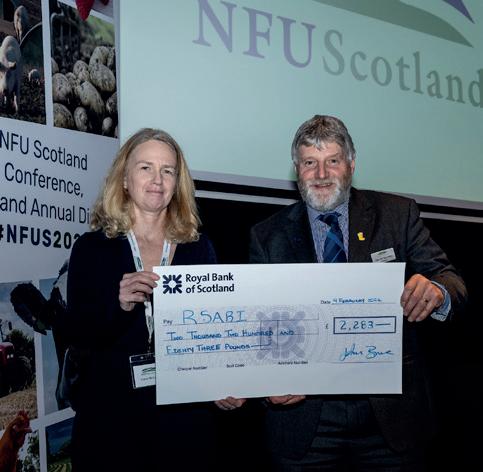
A fantastic £4566 was raised for Scotland’s favourite rural charities – RSABI and the Royal Highland Education Trust (RHET) during the annual dinner. The generous donations saw £2283 going to each charity with cheques presented at the conference on Friday morning.
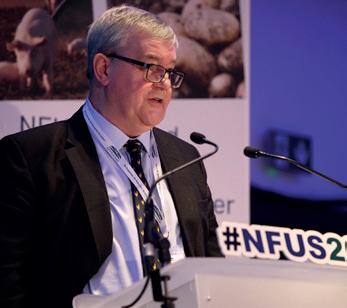
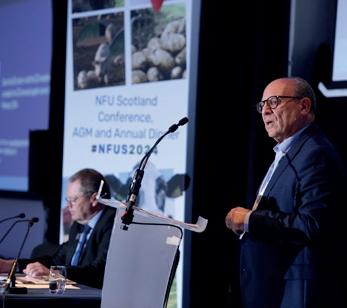
Everyone at NFU Scotland would like to say a very big thank you to all our speakers sponsors and suppliers for supporting the 2024 NFU Scotland Conference, Dinner and AGM at the Radisson Blu Hotel in Glasgow. Your contributions to the two days are hugely appreciated by all and ensured it was a great success.





HEADLINE SPONSORS



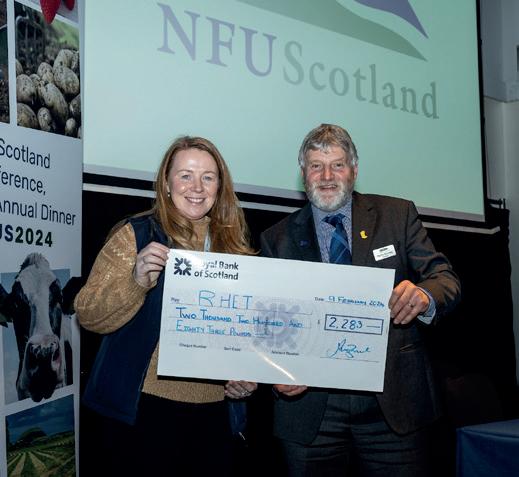













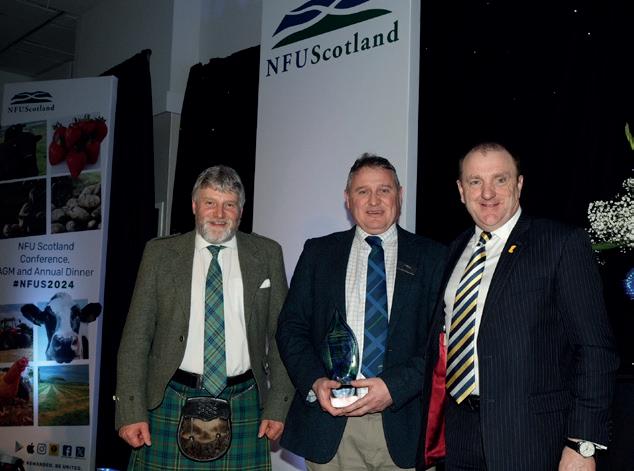
The Membership Flame – a NFU Scotland award that recognises outstanding efforts in recruitment and retention of members – was awarded to Jonathan Hogg and Graham Laing from Dingwall and Thurso offices. Highland Regional Chair Mark McCallum accepted the award on their behalf. It is the third year in a row that the offices have received the accolade for surpassing annual subscription targets. With the help of Lynn Sinclair, the secretaries finished 2023 having recruited 25 new members and taking their total to 582 across three branches - Inverness West & Ross, Caithness and Sutherland. It was, however, a close-call win, with Argyll, Bute, Arran and Islay region led by Secretary Euan Warnock, narrowly missing out.
This year’s conference was the last for Murray White from the Elgin office, who is due to retire later this year after 42 years in office. Also, for Shetland secretary Margaret Farquhar, who has passed the baton to Darren Stewart, after 30 years in the role. Other long-service achievements recognised included Vicky Carmichael from Duns office, who celebrates her 30th year at NFU Scotland and Keith Thom who has served 20 years at the Strathaven office. At the event the Union also said thank you to former Orkney Secretary, Kenny Slater.
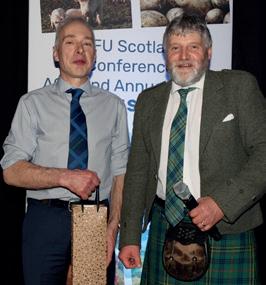
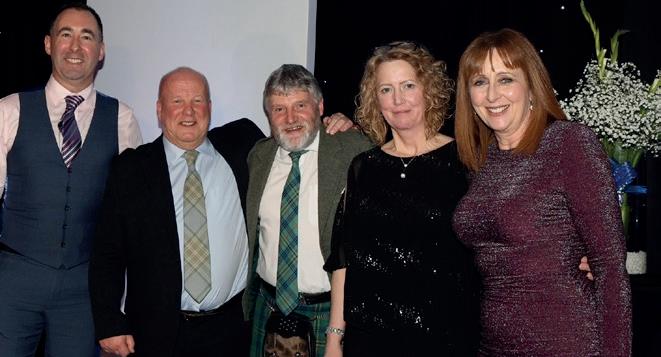
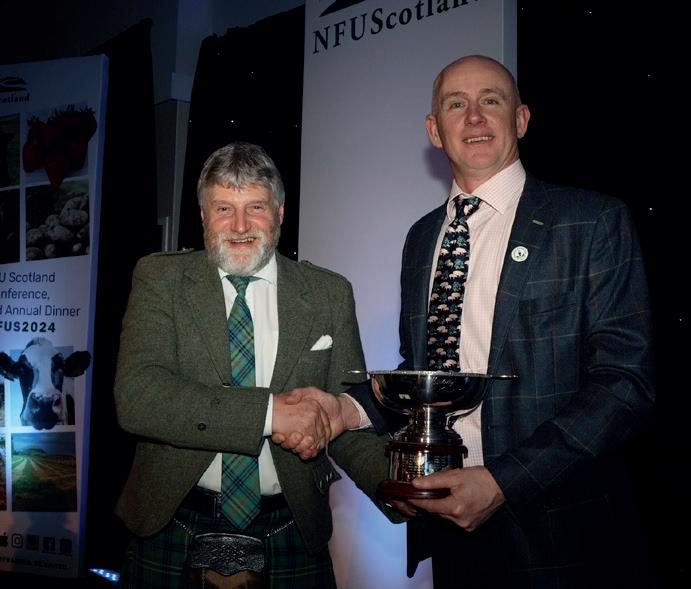
One of NFU Scotland’s highest accolades has this year been awarded to Newton Stewart dairy farmer and long-serving NFU Scotland member, Rory Christie. Since 2011, Rory has been a key member of NFU Scotland Milk Committee during which time he has had a fundamental role in NFU Scotland’s relentless efforts to secure fairer dairy contracts. He had a massive part in securing a breakthrough that will see a statutory instrument on milk contracts will be laid in Westminster this month; working with other UK farming Unions to deliver this outcome that will benefit all dairy farmers. Rory was in Canada when the conference was on but his brother Gregor (pictured) collected the award on his behalf.

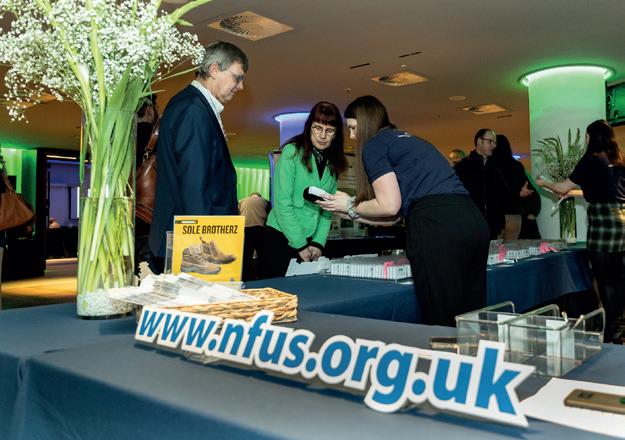
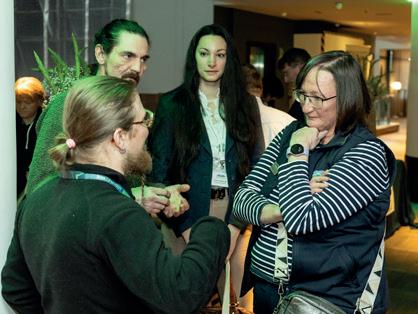
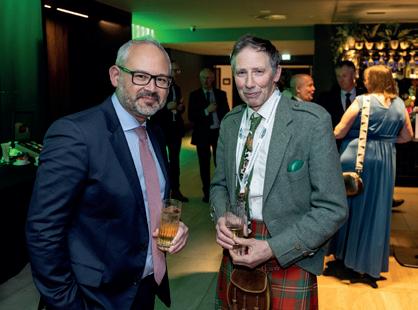
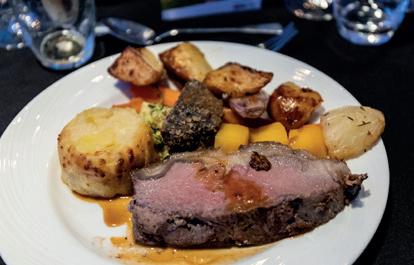
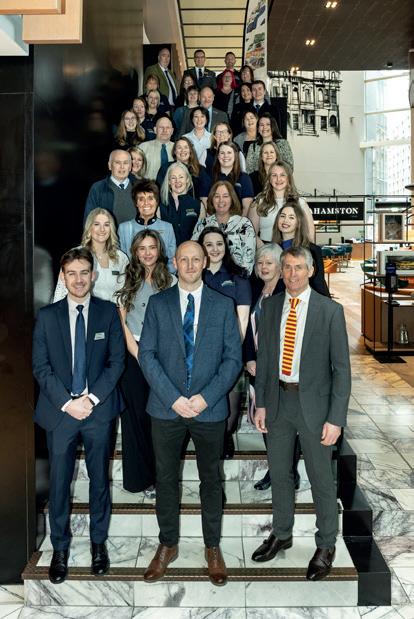
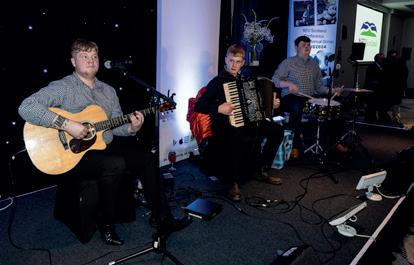
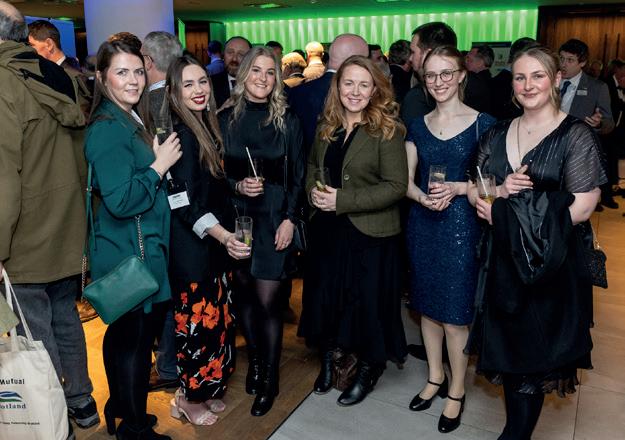
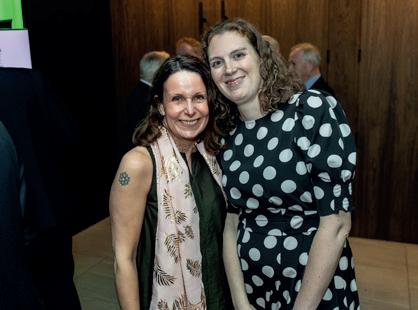
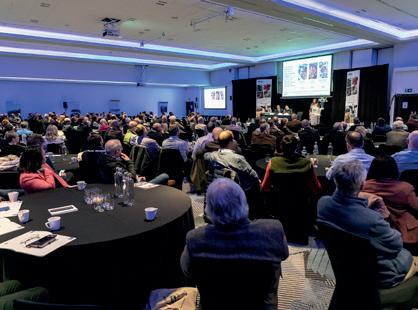
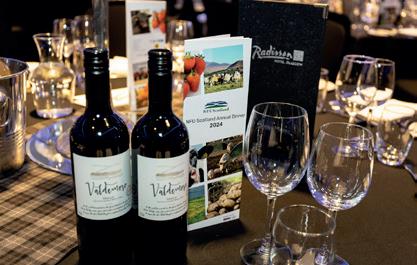

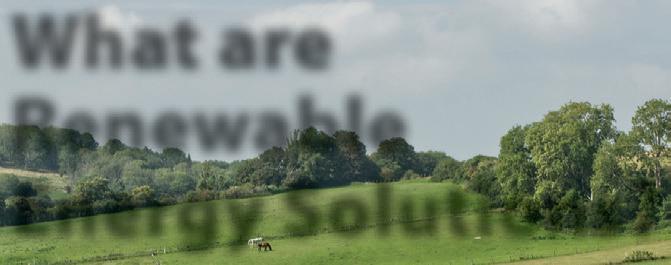

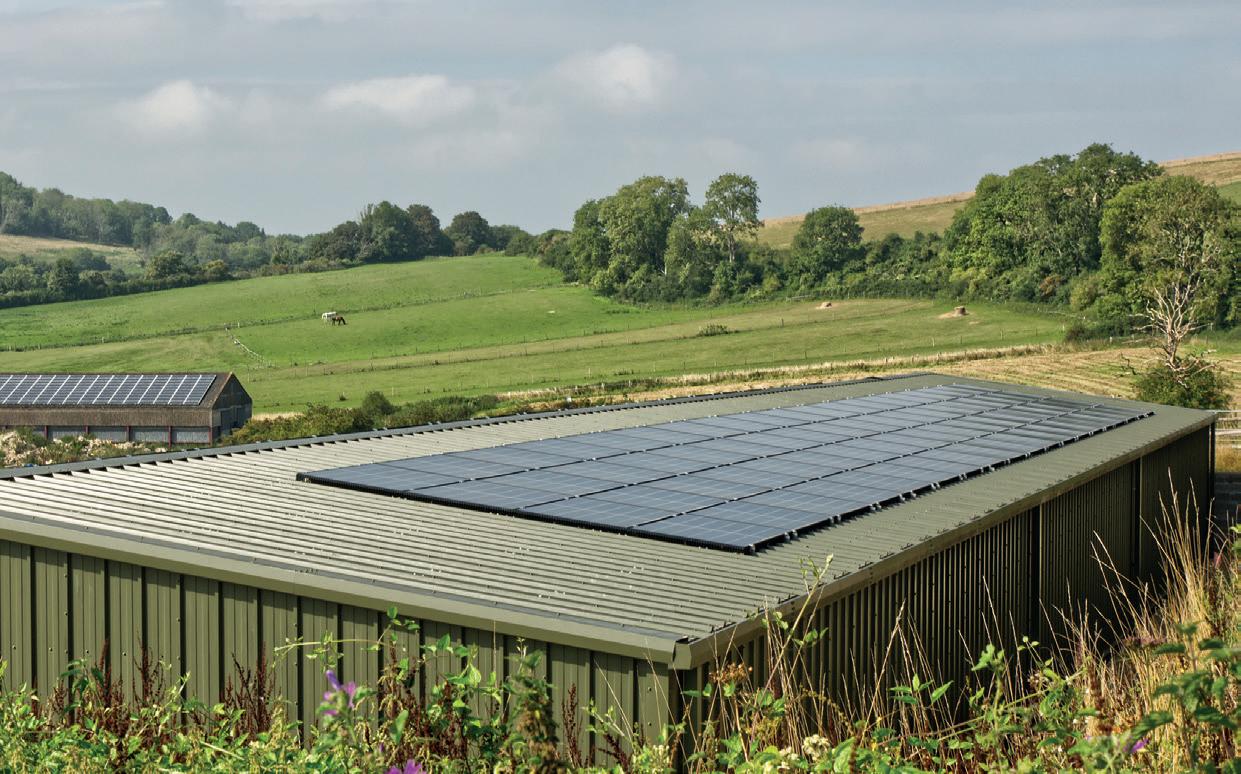

Traditional energy sources will become steadily more expensive than renewables.
If you’ve done all you can to be using your energy as efficiently as possible but still find yourself asking, ‘what more can I do?’ then it’s all about energy strategy, where energy markets and the demands of Net Zero seem to be converging.
If you’re buying electricity from the grid and have land or a rooftop that could be used for solar panels, typical payback periods are in the region of 5-7 years, or much less if electricity prices are high.
Wind turbines are still a good option if you can get planning permission. Heat pumps offer the opportunity to replace gas consumption with Net Zero-friendly green electricity. Batteries are slowly becoming more affordable, and hydrogen will offer possibilities in the future.
The ongoing cost reductions mean renewable energy systems make good business sense even without subsidies. As well as saving you money and emissions, larger
schemes can generate valuable income streams too.
NFU Energy’s Renewable Energy Solutions has been set up to tackle the huge challenge facing farming to decarbonise the agricultural sector and achieve Net Zero. The service is intended to help farmers and growers install high quality renewable energy systems without the hassle and with complete confidence.
Working with local installers in Scotland, we will first assess your eligibility for renewables to see whether generating energy to sell to the grid might be an option for you or if it’s best to stick to solely generating your own energy to use onsite. If either, or both, of these options would work in your situation, we will team you up with a trusted and accredited installer and continue to support you through each stage of the process. Alongside this, we can help you access funding through our specialist lender panel, as well as insurance through our exclusive partner, NFU Mutual.
• Knowledge: Our service combines NFU Energy’s deep technical and agricultural expertise with our partners’ industry-leading knowledge and specialism.
• Trust: Our technical advice is always tailored to your individual circumstances. And our partners have all gone through a rigorous selection process and operate to industry-leading standards.
• Convenience: We deliver a full end-to-end solution so that you only need to speak to us. We can also tailor our standard service to meet your specific needs.
• Value: We regularly benchmark our installers’ prices to ensure they are competitive and review every proposal to ensure you only pay for what you need.
If you are interested in finding out more about how we can help you install renewable energy systems on your farm, then visit www. nfuenergy.co.uk. Alternatively, please contact us on sales@ nfuenergy.co.uk or 024 7669 6512.
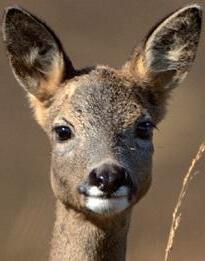
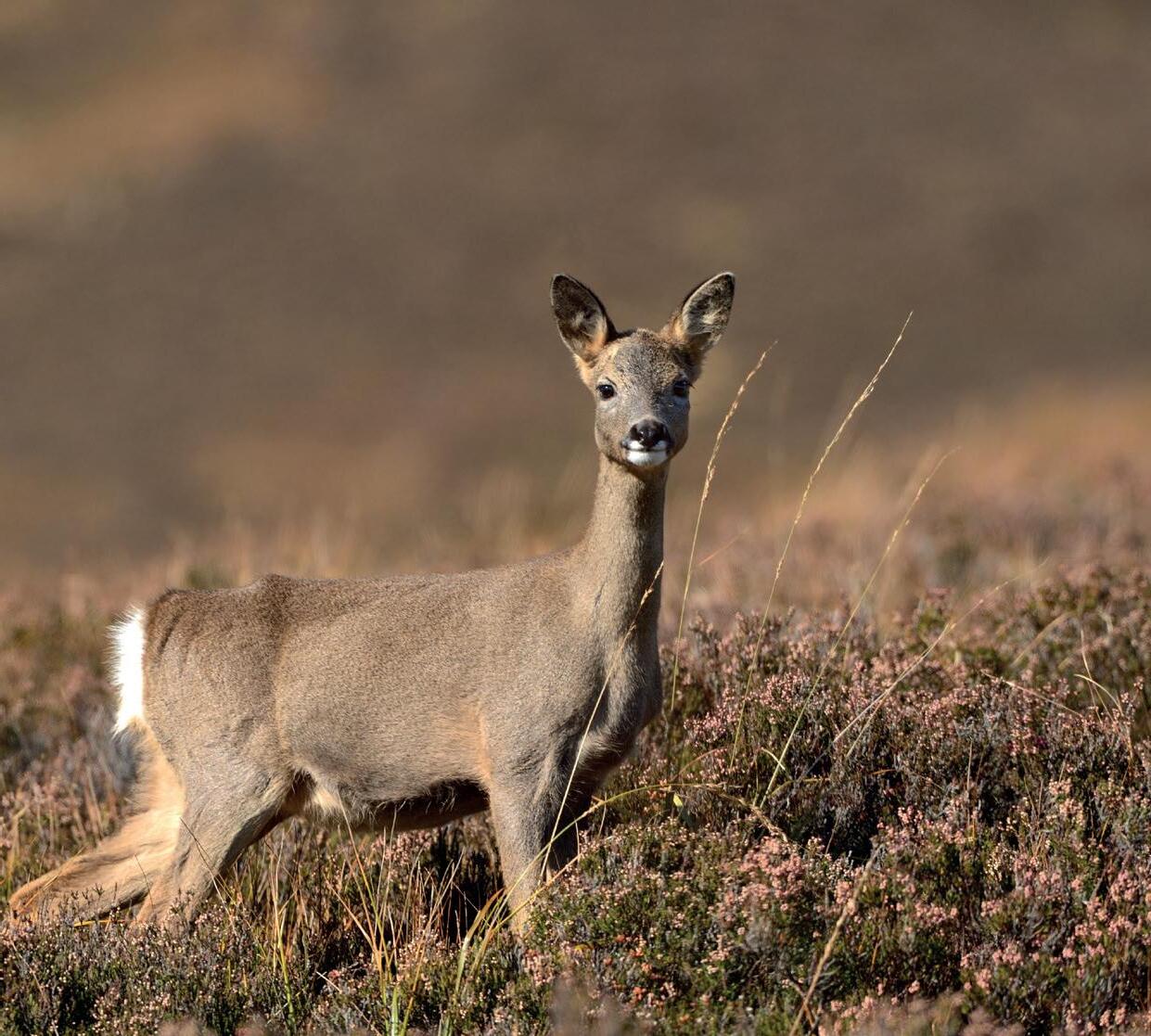




Agriculture is a business, and it can deliver fantastic benefi ts in managing the environment and supporting biodiversity. It relies on a balance with nature and must remain profi table as a business to continue delivering those benefi ts. However, there is no avoiding the fact that some species are thriving in some areas at the expense of agriculture, artificially supported by the crops produced, to the point where they cause serious agricultural damage and conflicts for agricultural activity.
In these cases, it is necessary to control some species, or manage disturbance in a way that allows farming activity to continue. Wildlife legislation is a complex beast with different species assigned different levels of protection by the law and certain methods of control restricted by environmental, welfare and firearms controls. It can be hard to keep on top of all the details and know what you can or can’t do to control the species causing you problems.
General licences cover common situations where there is unlikely to be any significant conservation impact. They avoid the need for people to apply for individual licences for these specific circumstances.
You do not need to apply to use a general licence, but you must be sure that the licence is appropriate and that you meet the licence conditions in full. Abuse of, or failure to follow, the conditions could constitute an offence.
General licences cover certain types of activity relating to listed birds, relevant to our members is to prevent damage to agriculture. The licence places certain limits and conditions on the methods used to control birds, for more information see NFUS Business guide 30/23.
Sometimes it is clear what culprit is causing damage, especially if you witness the damage firsthand. Sometimes it may be less obvious and previous experience, tales from neighbors or prejudice can cloud the issue and blaming the wrong culprit helps no one. It is important you recognise the right culprit to be able to do anything about it.
A recent project carried out by Science and Advice for Scottish Agriculture (SASA) in partnership with NFU Scotland, Scottish Land and Estates, and NatureScot, undertook postmortem examination and DNA analysis from lamb carcasses thought to have been killed by badgers. The results showed damage, supported by the presence of DNA, more likely to have been caused by foxes.
Equally understanding when lambs were taken can be useful to know. Know if they were they stillborn or had they got to their feet before they were taken can help provide useful management information.
See our article on the website identifying what might be to blame for predating your stock. Identify the right culprit to identify the right action.
With recent legislation tightening the rules around the use of more than two dogs to flush foxes and the probability of a ban coming in on the use of all snares, it is fair to say the options for effective fox control are limited. Recognising the increasing restrictions on methods for controlling foxes, we’ve asked for some guidance on the most effective way to legally control foxes given these restrictions. Read the article on our website www.nfus.org.uk
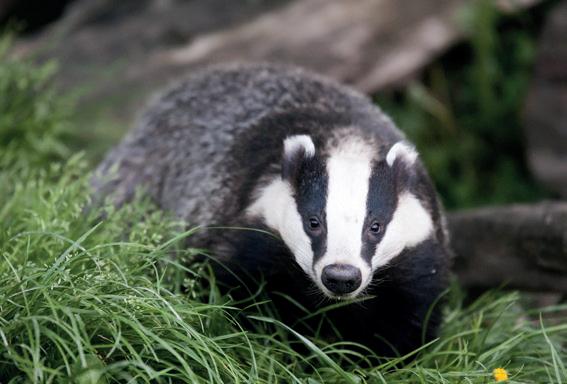
Protection status
Protected under Protection of Badgers Act 1992 as amended by the Wildlife and Natural Environment (Scotland) Act 2011
Control restrictions
It is an offence to kill, injure or remove a badger, or to damage, disturb or block access to one of their setts.
Licenses
Licenses can be granted to allow actions to prevent serious agricultural damage. This can include permissions to work in the vicinity of setts, damage or destroy setts or remove or kill badgers (using humane methods).
For further details and licensing visit or scan
NatureScot: http://tinyurl.com/ybau8wbn
Protection status
Protected under the Wildlife and Countryside Act 1981.
Control restrictions
It is an offence to:
• kill or take any wild bird,

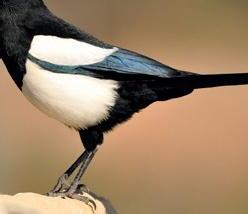
• damage, interfere with or obstruct a nest while birds are using or building it.
• take or destroy an egg of any wild bird.
Licenses
Magpies, carrion crows, hooded crows, and jackdaws are all on general license 02, allowing them to be killed/taken, providing it is for the purpose of preventing agricultural damage. (see note on general licenses). Ravens are not on the general License but licenses to prevent serious agricultural damage by Ravens can be applied for on an individual basis.
For further details and licensing visit or scan
NatureScot: General licences http://tinyurl.com/kmvad4sh
NatureScot: License application forms http://tinyurl.com/2smhpzru
General Licences: NFUS Business guide update 29/23
Protection status
European Protected Species (EPS)
Control restrictions
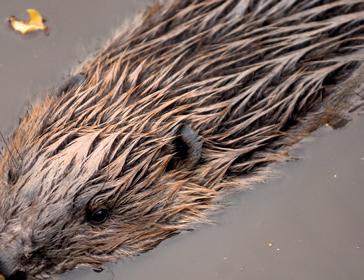

It is an offence to kill or remove a beaver, or to damage a lodge, burrow, or established dam. Dams can be removed if less than 2-weeks old.
Licenses
Licenses can be granted to remove or kill beavers (using humane methods), remove dams and repair damaged banks. Licenses relating to productive agricultural land should face less barriers to obtaining licenses. Licenses will exclude the taking of beavers during the Kit dependency period 1 April – 17 August. You will need to apply for a special license if it is necessary to take beavers during this period.
For further details and licensing visit or scan
NatureScot: http://tinyurl.com/yu25f7pa

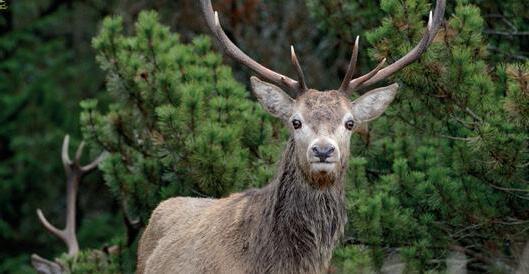
Protection status
The Deer (Scotland) Act 1996 sets out when, where, how and by whom deer can be shot.
Control restrictions
Deer do not belong to anyone while they are alive. But you must have landowner permission to take or kill deer. Tenants may take or kill deer on their land to prevent agricultural damage. Closed Seasons: It is an offence to kill or take female deer between 16 February and 20 October, for Roe deer this is 1 April to 20 October.
Licenses
Licenses can be granted to take deer during the closed season, to prevent agricultural damage. Muntjac deer are an invasive non-native species and can be killed at any time. Please note there are restrictions on the types of ammunition used, shooting at night and types of sights used.
For further details and licensing visit or scan
NatureScot: http://tinyurl.com/y28khx4s
Firearms and shooting Guidance: http://tinyurl.com/4w398cwn

Protection status
Foxes are a pest species and are not protected by law. It is however an offence to cause a fox unnecessary suffering so control must be humane.
Control restrictions

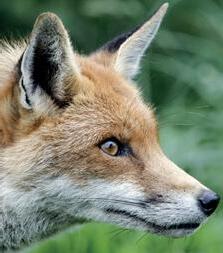
The Hunting with Dogs (Scotland) Act 2023 limits the use of dogs to hunt foxes. The Wildlife Management and Muirburn (Scotland) Bill currently going through Scottish Parliament intends to ban the use of snares.
Licenses
Licenses can be granted to allow the use of more than 2 dogs to flush foxes from cover to the gun in circumstances where the need for more than 2 dogs can be demonstrated.
For further details and licensing visit or scan
NatureScot: http://tinyurl.com/d5bacxfn
Protection status
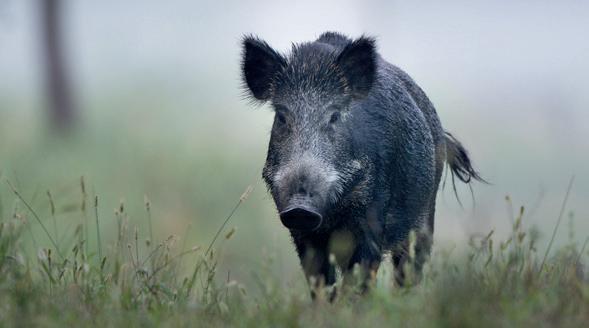
Wild boar and feral pigs are not native species and there are no restrictions on their control.
Control restrictions
It must be done in a safe and humane manner.
For further details and licensing visit or scan
NatureScot: http://tinyurl.com/7exrvdtn
Safe and Humane control guidance: http://tinyurl.com/bdhyfs74


NFUS: Guidance on the rules around hunting with dogs see Business Guide Update 30/23






Protection status




Protected under the Wildlife and Countryside Act 1981.

Control restrictions
It is an offence to:

• kill or take any wild bird.



• damage, interfere with or obstruct a nest while birds are using or building it.
• take or destroy an egg of any wild bird.


It is illegal to destroy Golden Eagle and White-tailed Eagle nest at any time. Habitually used nest for these species are protected at all times.
Licenses
Although highly protected it is possible to apply for a license to control Raptors where it can be demonstrated that they are causing serious agricultural damage. Licenses are now available to remove nest trees, manipulate eggs and ultimately lethal control. The bar is set high for evidence of serious agricultural damage, especially if applying for a license for lethal control. We will support members through the licensing process and continue to call for control measures to be available where mitigation options fail.
For further details and licensing visit or scan
Producers impacted by White-tailed eagles are encouraged to join the sea-eagle management scheme to access support and advice in dealing with White-tailed eagles. http://tinyurl.com/2ma7ctns

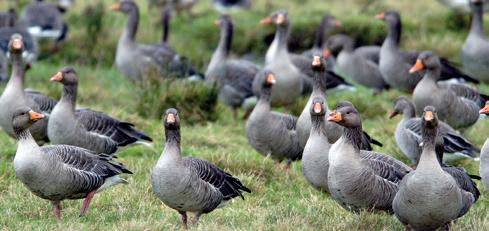
Protection status











Protected under the Wildlife and Countryside Act 1981. Scotland supports internationally important numbers of several goose species and has an international obligation to ensure their favourable conservation status: Barnacle (Svalbard and Greenland populations), Greater White-fronted (Greenland population), Greylag (Icelandic population), Pink-footed (Icelandic population) and Bean (Taiga population) geese.
Control restrictions
It is an offence to kill or take or injure any Goose, except quarry species during the open season. Quarry species include Greylag, pink-footed geese and Canada geese and you can legally shoot them between 1 September and 31 January (20 February below the high-water mark).
Licenses
Canada geese and resident Greylag geese are on the general license, allowing them to be killed/taken at any time of year, providing it is for the purpose of preventing agricultural damage. (see note on general licenses).
Other species can only be controlled under individual licenses applied for to protect against agricultural damage. This includes Pink-footed geese during their closed season.
For further details and licensing visit or scan
Guidance on controlling geese: http://tinyurl.com/bdharm7b



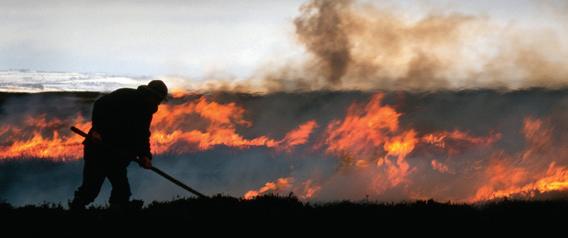
We have been liaising with MSPs in advance of the Stage 2 of the Wildlife Management and Muirburn Bill which proposes to introduce the requirement for a licence for muirburn. We underlined that muirburn is an important land management tool which can bring benefi ts to our heather moorland, biodiversity, and the prevention of wildfire. We also highlighted that the Bill must not make it too difficult or too expensive to do muirburn then it could lead to more wildfires.
We also set out that:
• Muirburn is a well-considered and thought-out practice, which often takes place in rotations of between 15-20 years.
• There are many reasons, including conservation benefi ts, why experienced and professional land managers carry out muirburn.
• Muirburn can reduce the fuel-load on moorland areas, which could prevent the risk of a severe wildfire incident.
We will continue to engage with MSPs as the Bill continues through the parliament.
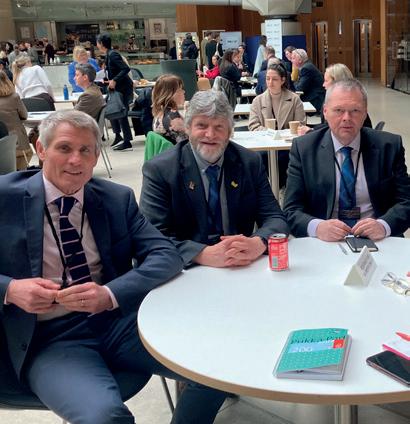
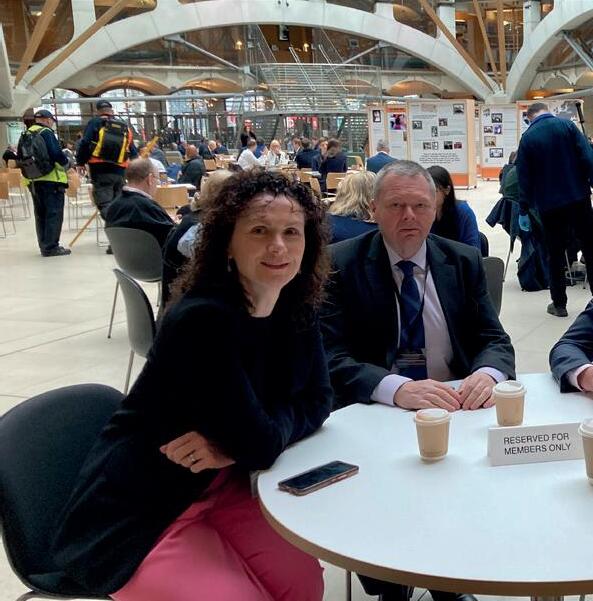
We held a briefing for SNP MSPs on the Agriculture and Rural Communities (Scotland) Bill at the Scottish Parliament in January. We set out the need for the Bill to deliver for agricultural production and underlined the importance of farm businesses to jobs both before and after the farm gate. We have now held briefings for each political party at the Scottish Parliament to discuss the Bill and continue to engage with MSPs, researchers and officials as it continues to progress through parliament.
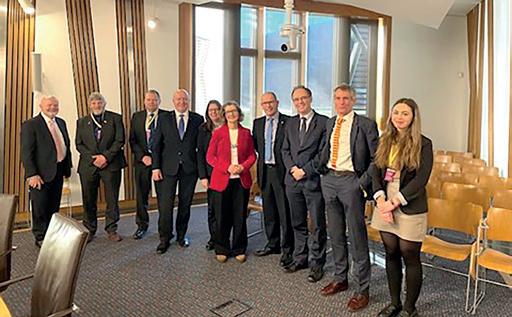
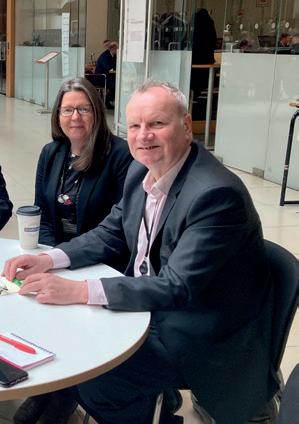
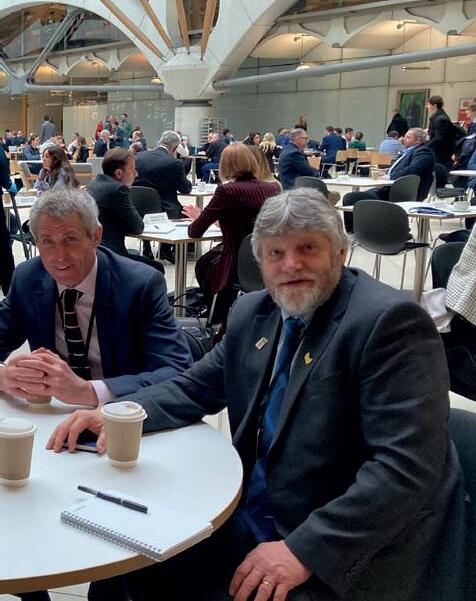

Martin Kennedy, President, Andrew Connon, Vice-President, Jonnie Hall, Director of Policy and Beatrice Morrice, Political Affairs Manager, held meetings with a range of MPs at Westminster recently. At each meeting, we highlighted the need for each party to include an increased, ringfenced multiannual funding commitment in their manifestos for the General Election. This is essential as the current commitment for funding ends this year. We also discussed trade deals, labour, seed potato export issues and the need for improvements to labelling. We met with Wendy Chamberlain Liberal Democrat MP, Michael Shanks Labour MP, Daniel Zeichner Labour MP and Shadow Minister (Environment, Food and Rural Affairs), Pete Wishart SNP MP and Convener of the Scottish Affairs Committee, Alyn Smith SNP MP, Steven Bonnar, SNP MP and Rural Spokesperson, and Ian Blackford SNP MP. We weren’t able to meet with any Conservative MPs this time however we are planning our next visit and hope they will be available to meet then.
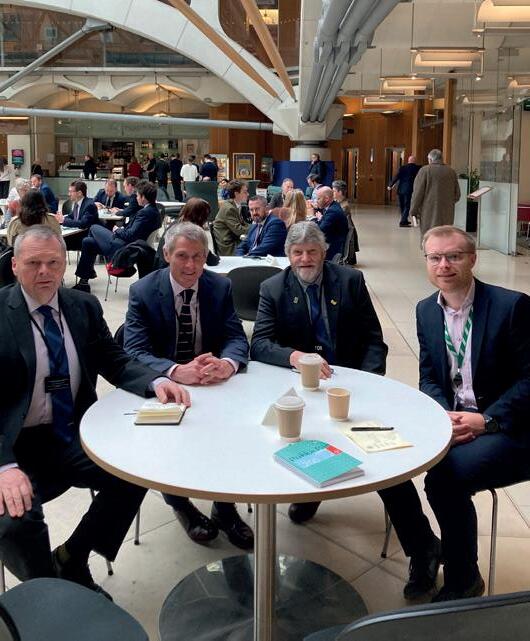
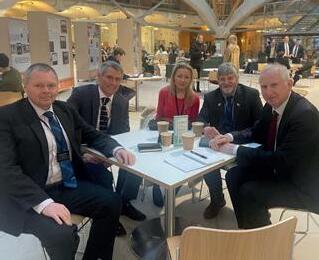
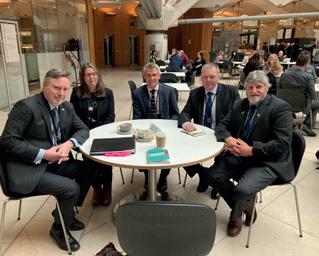




 Lucy McGillivray Policy Assistant
Lucy McGillivray Policy Assistant
Over the last couple of months, I have been gathering views from members, staff and stakeholders on how effective the current advisory and skills landscape and used it to inform a response to Scottish Government’s informal consultation on Tier 4. There have been mixed views on various issues, and many examples of good practice to be built upon, but it’s clear the current system needs to be improved.
A key message that we got across is the importance of peer-to-peer learning, especially when considering continuing

 Tracey Roan Policy Manager
Tracey Roan Policy Manager
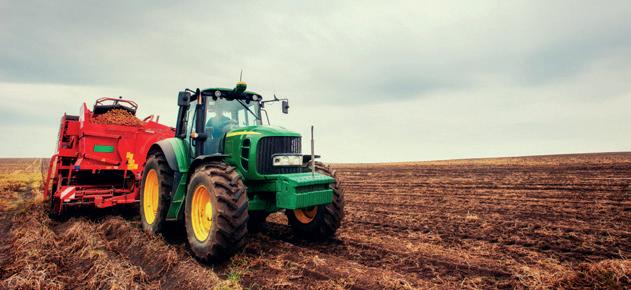
Nprofessional development (CPD). We included the need for a simple CPD system where examples of existing provisions should be counted. For example, FAS Connect groups blend technical information with networking and learning from each other. There are 40 established groups, with many farmers benefitting from the shared knowledge and experiences on specific topics. Visit the FAS website to find out more (https:// www.fas.scot/connect/ ).
We also underlined that apprenticeships are a fantastic pathway for keen, young people to get involved in agriculture, and the need for farmers to be supported to become a mentor. However, I’ve found there may be a couple of barriers to becoming an apprentice mentor, such as not knowing what is involved. To overcome this, we previously helped create Lantra’s
FU Scotland’s eff orts in lobbying for milk contract reform to deliver fairness and transparency to the milk supply chain saw a major step forward in January. A major revision to the draft legislation extended to all milk contracts – both existing and new. It had been highlighted that, in the previous draft of the Statutory Instruments (SI), legislation might only be applied to new contracts which would have been unacceptable to NFU Scotland.
We will continue to work very
closely with other UK farming unions to ensure the SI, when laid, is fi t for purpose, and delivers the fairness and transparency across the whole of the UK that everyone is seeking, including the Government.
Getting it right for milk is hugely important as successful contract reform in this area has implications for what might be delivered to improve contractual arrangements in other sectors. Successfully bringing forward statutory milk contracts into legislation could be the foundation for fairer contracts for all primary producers.
Employers Toolkit, which includes everything you need to know when employing an apprentice. It’s a really useful resource and can be accessed on the Lantra website (https://www.scotland.lantra.co.uk/ employers-toolkit).
I’ve also heard from a few of you about the need to upskill your workforce. We have been involved in the development of SRUC’s new HND level, agricultural management apprenticeship programme. It’s designed for those already experienced in farming, employers looking to increase the skillset and expertise of their employees to help grow their business, or those looking to take the next step into management by gaining a higherlevel qualification while still working. Applications are being sought now to start soon. Please email apprenticeships@sruc.ac.uk to obtain more information.
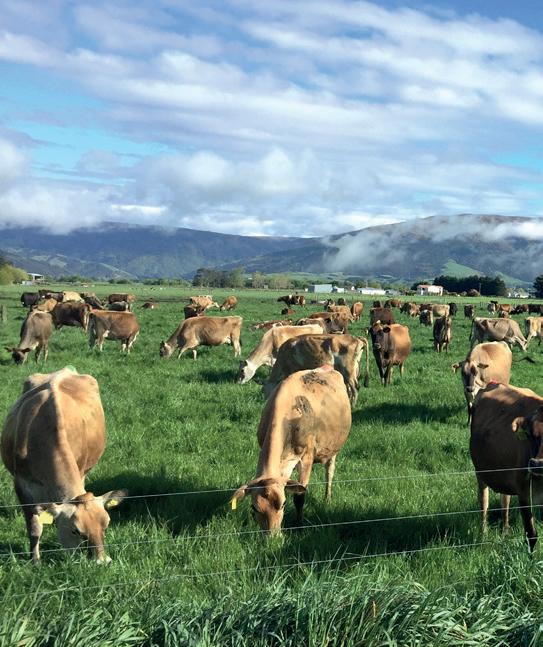

 Sarah Cowie Policy Manager
Sarah Cowie Policy Manager
The Campaign for Responsible Rodenticide Use (CRRU) has announced that significant changes are coming to the way farmers can access and use rodenticides covered by the UK Rodenticide Stewardship Regime (these are known as second generation anticoagulant rodenticides –SGARs). From January 2026, all buyers and users of professional SGAR products must hold either:
• A stewardship-specific training certificate less than five years old, or
• An older one with proof of membership of a stewardshipspecific Continuing Professional Development (CPD) scheme.
Currently, farmers must show proof of competence to purchase and use rodenticides. This can be done by completing a CRRU approved training course – this only needs to be done once, as the certification lasts a lifetime. Alternatively, you can be a member of an CRRU approved farm assurance scheme
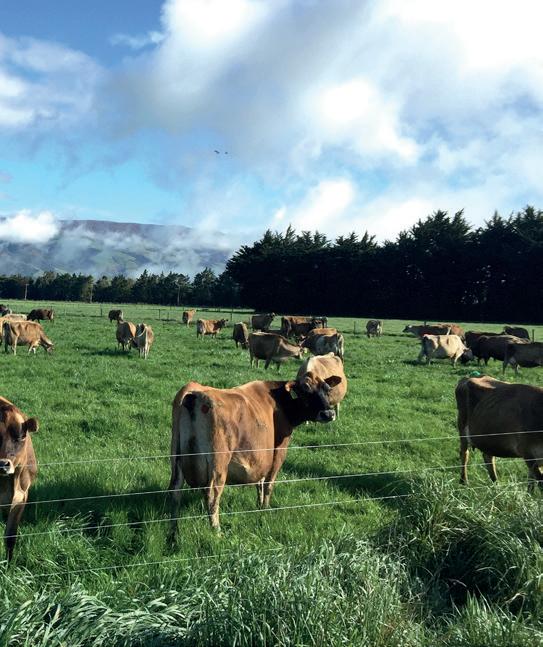
(such as Red Tractor, Scottish Quality Crops or Quality Meat Scotland).
The proposed changes mark a significant shift away from the current situation where membership of a stewardship-approved farm assurance scheme is accepted as proof-of-competence.
We are really disappointed that this decision by the CRRU to introduce an additional certification requirement for the use of rodenticides on farm has been made without any formal consultation with farming
unions, trade associations or farm assurance schemes.
We are also concerned that the data the CRRU uses as the rationale for why these changes are needed is specifi cally English-focused. As well as this, it is unclear at the time of writing whether the Scottish Government has had any involvement in this decision. We will raise this with Scottish Government offi cials, and will continue to work with other UK Unions and farm assurance schemes in order to ensure the best outcome for our members.
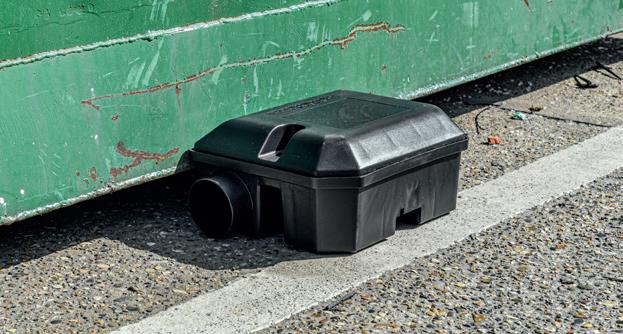
Once again, the number of dairy herds in Scotland has declined, decreasing to 794.
The average herd size is however now 227, up six from last year and we have reached record high of 180, 648 cows.
The fi gures are very much following the trend over the last 10 years which is a decrease in the number of dairy herds but increase in cow numbers and herd size.
Looking at the fi gures on a county bases, Dumfriesshire has just taken over Ayrshire to be the largest dairying county, followed by Wigtownshire
and then Kirkcudbrightshire. Roxburghshire is home to the largest average herd size of 626.
Ayrshire saw the biggest decrease with a net loss of six herds followed by Dumfriesshire with a net loss of four herds.
There was however a net increase of three herds in Aberdeenshire and Wigtownshire, respectively.
Commenting Janette Mathie, the secretary of the Scottish Dairy Cattle Association (SDCA) who publish these fi gures said, “2023 was a challenging year for Scottish dairy farmers, with reductions in milk prices, labour issues and the cost-of-living crises but there is optimism and resilience with new dairies due to start up during 2024 and dedication in producing high quality milk and dairy products and breeding superior dairy cattle”.



 Rhianna Montgomery Policy Advisor
Rhianna Montgomery Policy Advisor

Basis period reform means moving from the current year to the tax year basis of assessment.
This applies to all unincorporated businesses and HMRC are giving businesses a transitional period in the year from 6 April 2023 to 5 April 2024 to move onto a tax year basis.
Who does this impact?
All unincorporated businesses without a 31 March – 5 April year end. HMRC estimates that this is 7% of sole traders and 33% of partnerships. Those most likely to affected include large and international partnerships, seasonal businesses (tourism) and farming businesses.
This change will have an administrative impact due to the timescale for accounts preparation and return submission, as well as a fi nancial impact as tax will be payable nearer to the real time.
Businesses with a year-end early in the tax year, will be signifi cantly impacted.
In relation to tax bills, there will be options available to reduce catch-up tax bills through overlap relief and spreading relief. Spreading relief over fi ve years is available on transition profi ts (not standard profi ts) in 202324. Overlap relief can be set off against transition profi ts. Overlap relief must be off set or lost.
Changing the business year end, where there is an accounting date early in the tax year, potentially brings additional challenges. There are options available for those with a 30 June year-end;
• Retain the 30 June accounting date indefinitely.
• Change the accounting date to 31 March either before or after 2023-24
• Change the accounting date to 31 March, starting with 31 March 2024
To ensure you are prepared for these changes, please ensure you speak with your accountants and seek professional advice where necessary.
You also have the tax helpline through Johnstone Carmichael as part of our member services.

Scotland wants to improve transparency of land ownership. New legislation has been introduced by the Scottish Government and passed by the Scottish Parliament. As part of this, a new register has been established. You may have to make a submission to this register. As a valued member of our organisation, we’re letting you know that you may need to submit an entry to the new RCI to avoid a fine.
Who might need to register?
If you’re a registered owner of land or property in Scotland, or a registered tenant with a lease of
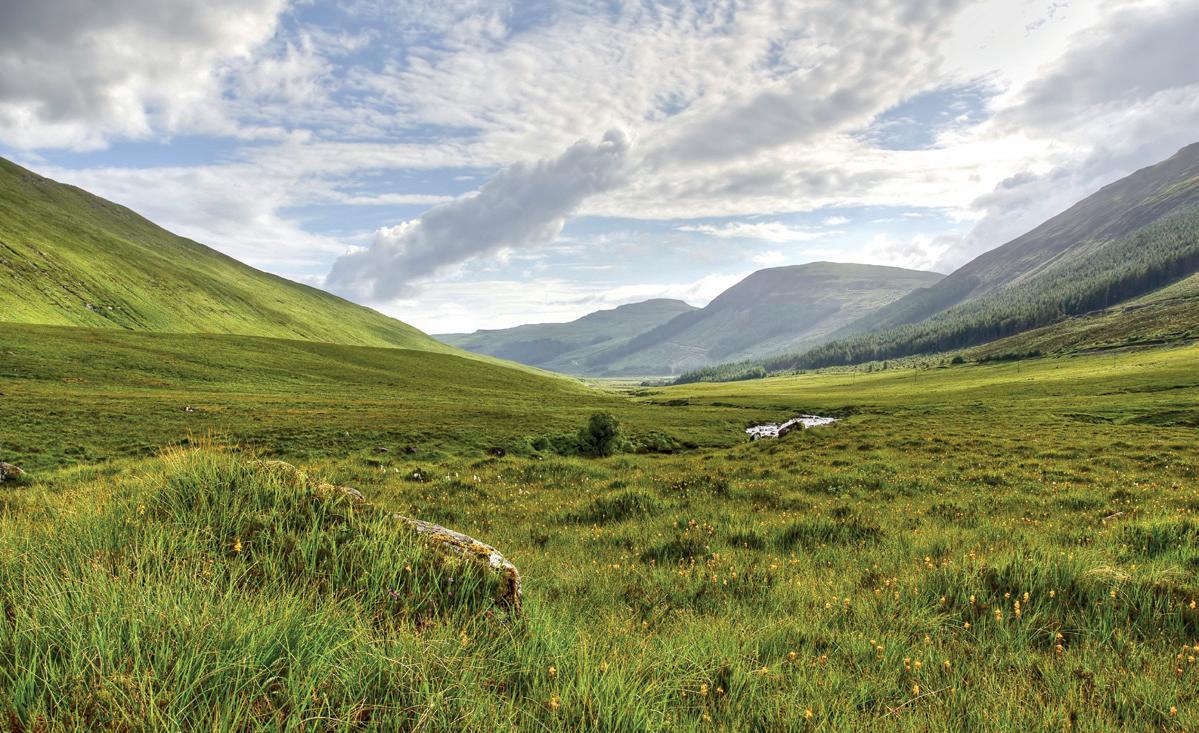
more than 20 years, and someone else has a controlling interest in that land or property – you’re legally obliged to act before 1 April 2024, or you could risk a fine of up to £5,000.
Even if you are not in scope right now, it’s important to be aware of this legislation as your circumstances may change in the future and bring you in scope of the legislation.
The new legislation.
The new register, called the Register of Persons Holding a Controlled Interest in Land in Scotland (RCI, for short), launched on 1 April 2022. It exists to improve transparency about land ownership by making
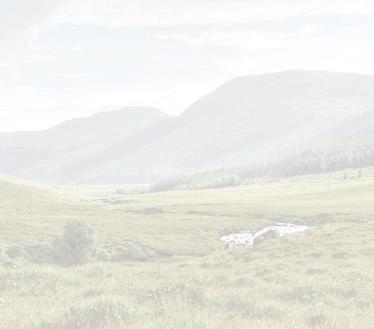
information about those who have a controlling interest in land publicly available – that is, those who ultimately make decisions about the management or use of land, even if they are not necessarily registered as the owner of the land. If these conditions apply to you, failure to register could result in a fine.
Act now to avoid the risk of a fine of up to £5,000. To comply with the new legislation, you, as an individual, need to check if you are legally required to submit to the register before the deadline of 1 April 2024, after which point you could risk being fined up to £5,000. Visit ros.gov.uk/rci

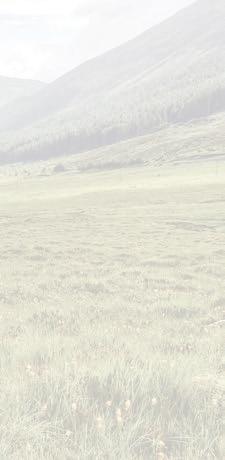



 Lisa Hislop Policy Advisor
Lisa Hislop Policy Advisor
Both the UK and Scottish Government have very ambitious targets to reach Net Zero. In Scotland there is a target to reduce emissions by 75% by 2030. Agriculture accounts for roughly 75% of our current emissions and a significant proportion of that is methane. There are various options on how we approach this – for example, improving feed efficiencies, herd genetics, and grassland management to name a few. However, we must not dismiss the great strides that the livestock industry has already made in improving efficiencies. It is also an industry which continues to operate on very fragile if not minimal market returns.
The Scottish Government is considering various mitigation measures and how policy can play

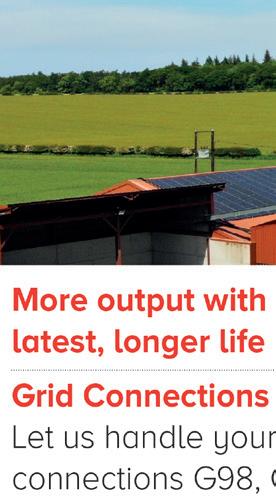


a role in this. The most obvious example is the introduction of calving interval conditionality on the calf scheme to incentivise breeding efficiency. The use of methane supressing feed products (MSFP) is also being considered as mentioned by the Cabinet Secretary at Agriscot, and we have been asked for sector views on how the use of these products can be supported.
While MSFP might be seen as a quick fix for the industry by simply introducing a feed additive which reduces the methane produced per cow, the practicalities and consequences cannot be ignored. Some of our concerns relate to animal health, food safety, consumer perception and cost to the primary producer. On that final point, who
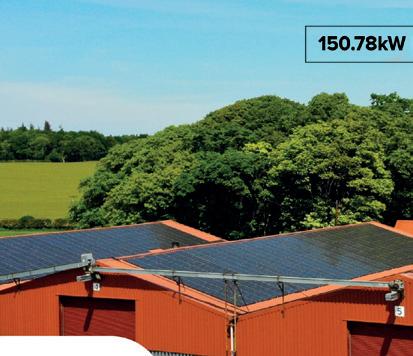

pays? In short, there are two options for the introduction of MSFP, either there is support on offer from Governments to enable them to meet the aforementioned targets, or the supply chain must pay for the costs which enable them to meet equally ambitious targets associated with the mandatory reporting required of publicly listed companies.
In all discussions, both policy and supply chain, we continue to stress that without proper consideration of the unintended consequences there will not be a livestock industry, as we continue to operate below critical mass. The market must deliver a fair price back to the primary producer, and in the absence of this we must have enabling and incentivising policy for livestock production.
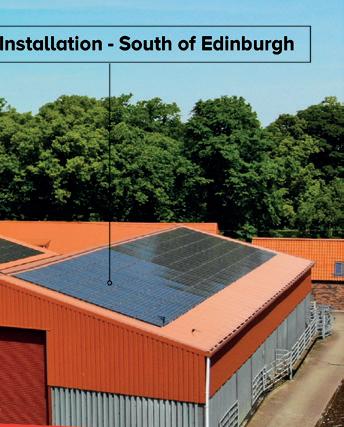

Learn
Whow to make
your
Learn how to make your money work best for you with advice from NFU Mutual on investing wisely and understanding your allowances
money work best for you
with advice
Learn how to make your money work best for you with advice from NFU Mutual on investing wisely and understanding your allowances
hile many people look forward to traditional festive fare at this time of year, others are unable to afford even the most basic food for themselves, and their families.
WKfrom NFU Mutual on investing wisely and understanding your allowances
KKThe cost-of-living crisis – and rising cost of even basic foods – has made it even more difficult for many people to put a meal on the table this year. In fact, more than 13 million people in the UK face food insecurity, according to FareShare, the UK’s biggest charity fighting hunger and food waste.
eeping all of your money in cash savings accounts may seem like a safe option. But you may miss out on the potential to grow your money, particularly if interest rates don’t keep up with inflation. Now could be a good time to reconsider how and where to keep your money, and understanding your allowances can be helpful.
eeping all of your money in cash savings accounts may seem like a safe option. But you may miss out on the potential to grow your money, particularly if interest rates don’t keep up with inflation. Now could be a good time to reconsider how and where to keep your money, and understanding your allowances can be helpful.
eeping all of your money in cash savings accounts may seem like a safe option. But you may miss out on the potential to grow your money, particularly if interest rates don’t keep up with inflation. Now could be a good time to reconsider how and where to keep your money, and understanding your allowances can be helpful.
hile many forward festive fare time of are unable even the most basic food for and their families.
The cost-of-living crisis –cost of even basic foods – has even more difficult for many to put a meal on the table this fact, more than 13 million people the UK face food insecurity, to FareShare, the UK’s biggest fighting hunger and food waste.
The current tax year ends on 5 April 2024. Here are some things for you to consider:
The current tax year ends on 5 April 2024. Here are some things for you to consider:
The current tax year ends on 5 April 2024. Here are some things for you to consider:
At the same time, every year, more than three million tonnes of good-to-eat, surplus food goes to waste on UK farms. That’s enough for seven billion meals, according to FareShare, which takes good-to-eat surplus food from across the food industry, sorts it and passes it onto a network of nearly 8,500 charities and community groups across the UK.
In 2022-2023, the charity redistributed 54,000 tonnes of food: enough to make 128m meals, or four meals every second. At NFU Mutual, we see it as part of our role to make positive impacts on the welfare of those working and living in rural communities in the UK, and we are only too aware of the growing impact of food poverty in rural communities.
Putting money into a pension is one of the most tax-efficient ways to invest for the long term. The government helps you invest – for every £80 you pay into your pension, HMRC currently pays an extra £20 tax relief making your actual contribution worth £100. In a pension, any growth is free from UK Income Tax and Capital Gains Tax. There are however rules on the amount you can contribute to your pension each year and still receive tax relief.
Putting money into a pension is one of the most tax-efficient ways to invest for the long-term. The government helps you invest – for every £80 you pay into your pension, HMRC currently pays an extra £20 tax relief making your actual contribution worth £100. In a pension, any growth is free from UK Income Tax and Capital Gains Tax. There are however rules on the amount you can contribute to your pension each year and still receive tax relief.
Putting money into a pension is one of the most tax-efficient ways to invest for the long term. The government helps you invest – for every £80 you pay into your pension, HMRC currently pays an extra £20 tax relief making your actual contribution worth £100. In a pension, any growth is free from UK Income Tax and Capital Gains Tax. There are however rules on the amount you can contribute to your pension each year and still receive tax relief.
This is why our NFU Mutual Charitable Trust – which exists to promote and support charities working in agriculture, rural development and insurance – is proud to support FareShare’s fight against food poverty. Since 2021, the NFU Mutual Charitable Trust has donated a total of £250,000 to the charity.
How farms are donating their surplus for good Farms and rural businesses throughout the UK are also doing their bit to help. They can participate through FareShare’s Surplus with Purpose scheme, which helps businesses to cover the extra costs of redistributing their unsold food to people who need it most.
Once you reach 55 (57 from 2028), you can take money from your pension as you wish. The first 25% will normally be tax-free, any amount over and above is added to your other income and taxed. So withdrawing lump sums from your pension could push you into a higher Income Tax bracket. Spreading withdrawals over a number of tax years could help reduce the impact of any tax liabilities. There’s also a limit on the annual pension contributions you and your employer can make if you’ve already taken a taxable withdrawal from your pension. This could mean you miss out on valuable employer pension contributions in addition to your own.
Once you reach 55 (57 from 2028), you can take money from your pension as you wish. The first 25% will normally be tax-free, any amount over and above is added to your other income and taxed. So withdrawing lump sums from your pension could push you into a higher Income Tax bracket. Spreading withdrawals over a number of tax years could help reduce the impact of any tax liabilities. There’s also a limit on the annual pension contributions you and your employer can make if you’ve already taken a taxable withdrawal from your pension. This could mean you miss out on valuable employer pension contributions in addition to your own.
Once you reach 55 (57 from 2028), you can take money from your pension as you wish. The first 25% will normally be tax-free, any amount over and above is added to your other income and taxed. So withdrawing lump sums from your pension could push you into a higher Income Tax bracket. Spreading withdrawals over a number of tax years could help reduce the impact of any tax liabilities. There’s also a limit on the annual pension contributions you and your employer can make if you’ve already taken a taxable withdrawal from your pension. This could mean you miss out on valuable employer pension contributions in addition to your own.
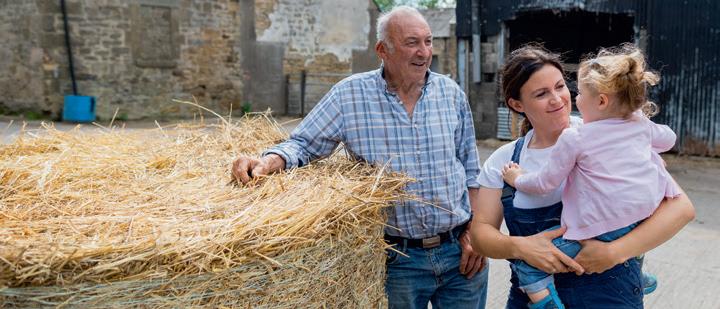
Investing for Children

You can invest up to £2,880 per child each tax year into a pension and HMRC will top this up with a further £720 to give a total of £3,600. This is a long-term investment, designed to give children a head start.
code with a smart phone
As farmers know all too well, this surplus food will often end up getting ploughed back into the ground, used for animal feed or sent to landfill.
You can invest up to £2,880 per child each tax year into a pension and HMRC will top this up with a further £720 to give a total of £3,600. This is a long-term investment, designed to give children a head start.
You can invest up to £2,880 per child each tax year into a pension and HMRC will top this up with a further £720 to give a total of £3,600. This is a long-term investment, designed to give children a head start.
Build an ISA nest egg
when you make the gift. Inheritance tax planning is not regulated by the Financial Conduct Authority.
when you make the gift. Inheritance tax planning is not regulated by the Financial Conduct Authority.
when you make the gift. Inheritance tax planning is not regulated by the Financial Conduct Authority.
Capital Gains Tax
Capital Gains Tax
But the Surplus with Purpose scheme avoids thousands of tonnes of surplus fresh fruit and vegetables, meat and dairy products being wasted. Even cupboard items, and chilled and frozen foods, find a new home as part of the scheme.
You can invest up to £20,000 this tax year in an ISA, building up a nest egg free of UK Income tax and Capital Gains tax. The same tax benefits are available with Junior ISAs, which you can use to build up a pot of money for a child – they’ll be able to access that when they’re 18 years old. The maximum Junior ISA contribution is £9,000 in the 2023/4 tax year.
You can invest up to £20,000 this tax year in an ISA, building up a nest egg free of UK Income tax and Capital Gains tax. The same tax benefits are available with Junior ISAs, which you can use to build up a pot of money for a child – they’ll be able to access that when they’re 18 years old. The maximum Junior ISA contribution is £9,000 in the 2023/4 tax year.
You can invest up to £20,000 this tax year in an ISA, building up a nest egg free of UK Income tax and Capital Gains tax. The same tax benefits are available with Junior ISAs, which you can use to build up a pot of money for a child – they’ll be able to access that when they’re 18 years old. The maximum Junior ISA contribution is £9,000 in the 2023/4 tax year.
Putting money aside for children can also help reduce your potential Inheritance Tax bill.
Putting money aside for children can also help reduce your potential Inheritance Tax bill.
Putting money aside for children can also help reduce your potential Inheritance Tax bill.
Don’t forget Inheritance Tax planning
Those selling or gifting shares, or property other than their main home, will see the amount of tax-free gain they can enjoy fall from £6,000 to £3,000 from April 2024.

Things you should know:
It’s wise to take a long-term view on inheritance planning, so that your heirs don’t pay more tax than they need to.
Don’t forget Inheritance Tax planning
It’s wise to take a long-term view on inheritance planning, so that your heirs don’t pay more tax than they need to.
It’s wise to take a long-term view on inheritance planning, so that your heirs don’t pay more tax than they need to.
One grower making the most of the opportunity presented by the scheme is Southern England Farms, based in Hayle, West Cornwall. The business works over 6,500 acres and is a key supplier to several major UK retailers, including a number of supermarkets, of Cornish-grown courgettes, cauliflower, broccoli, spring greens, sweetheart and savoy cabbage. Co-owner Jane Richards, along with her 400-plus pickers, works with FareShare to ensure any excess vegetables never go to waste. Since 2019, they have donated 396 tonnes of excess produce to the charity.
One way of doing this is to make gifts to your loved ones, taking advantage of the annual £3,000 gift allowance, or the ‘gifts out of normal expenditure’ exemption. Larger gifts can also be exempt from Inheritance Tax as long as you live more than seven years from
One way of doing this is to make gifts to your loved ones, taking advantage of the annual £3,000 gift allowance, or the ‘gifts out of normal expenditure’ exemption. Larger gifts can also be exempt from Inheritance Tax as long as you live more than seven years from
One way of doing this is to make gifts to your loved ones, taking advantage of the annual £3,000 gift allowance, or the ‘gifts out of normal expenditure’ exemption. Larger gifts can also be exempt from Inheritance Tax as long as you live more than seven years from
Jane says: “No farmer ever wants to see their produce go to waste. But sometimes circumstances mean there is a surplus that will often go into the waste trailer or simply become compost.”
Those selling or gifting shares, or property other than their main home, will see the amount of tax-free gain they can enjoy fall from £6,000 to £3,000 from April 2024.
Those selling or gifting shares, or property other than their main home, will see the amount of tax-free gain they can enjoy fall from £6,000 to £3,000 from April 2024.
Things you should know:
Things you should know:
At the same time, every year, than three million tonnes of surplus food goes to waste That’s enough for seven billion according to FareShare, which good-to-eat surplus food from food industry, sorts it and passes a network of nearly 8,500 charities community groups across the In 2022-2023, the charity 54,000 tonnes of food: enough 128m meals, or four meals every At NFU Mutual, we see it as role to make positive impacts welfare of those working and rural communities in the UK, only too aware of the growing food poverty in rural communities.
• The tax benefits of pensions and ISAs depends on individual circumstances and may change in the future.
• The tax benefits of pensions and ISAs depends on individual circumstances and may change in the future.
• The tax benefi ts of pensions and ISAs depends on individual circumstances and may change in the future.
She adds: “The scheme with FareShare is a brilliant way of ensuring excess produce is redistributed to those who really need it. It is so very rewarding when we find out how many meals our surplus veg has gone on to make. It is great that NFU Mutual has embraced the scheme so wholeheartedly and supports their customers who wish to participate in ‘Surplus with Purpose’ too.”
• The value of your pension and investment funds can go down and you may get back less than you invested.
• The value of your pension and investment funds can go down and you may get back less than you invested.
• The value of your pension and investment funds can go down and you may get back less than you invested.
We at NFU Mutual applaud Jane and all the team at Southern England Farms for their outstanding efforts in supporting the work FareShare does to alleviate food poverty in our communities.
We’re proud to support FareShare aise all farms and rural businesses who participate in the Surplus with Purpose scheme.

To find out more about NFU Mutual insurance or financial services, speak to your local NFU Mutual agency office or visit nfumutual.co.uk/tax-allowances
To find out more about NFU Mutual insurance or financial services, speak to your local NFU Mutual agency office or visit
To find out more about NFU Mutual insurance or financial services, speak to your local NFU Mutual agency office or visit nfumutual.co.uk/tax-allowances
NFU Mutual Financial Advisers advise
NFU
products and selected
This is why our NFU Mutual Trust – which exists to promote support charities working in rural development and insurance proud to support FareShare’s food poverty. Since 2021, the Charitable Trust has donated £250,000 to the charity. How farms are donating surplus for good Farms and rural businesses the UK are also doing their They can participate through Surplus with Purpose scheme, helps businesses to cover the of redistributing their unsold people who need it most.
NFU Mutual Financial Advisers advise on NFU Mutual products and selected products from specialist providers. When you get in touch, they’ll explain the advice service and charges.
For more information about FareShare’s Surplus with Purpose scheme, and how you can participate, visit www. fareshare.org
NFU Mutual Financial Advisers advise on NFU Mutual products and selected products from specialist providers. When you get in touch, they’ll explain the advice service and charges.
from specialist providers. When you get in touch, they’ll explain the advice service and charges.
Prudential Regulation Authority. A member of the Association of British Insurers.



 Jonnie Hall Director of Policy
Jonnie Hall Director of Policy
s with many things in life, ignoring detail is a dangerous strategy.
As the Agriculture and Rural Communities (Scotland) Bill meanders through Stage 1 and the more turbulent Stage 2 parliamentary processes, we need to dive very deeply into its detail.
The Bill provides a legal framework for the Scottish Government to replace the EU’s Common Agricultural Policy with a new system of agricultural support better suited to Scotland’s needs.
As a ‘framework Bill’, this primary legislation does not include detail on how policy will be put into given practice. Instead, the Bill will enable ministers to make new payments and create new payment schemes. This will be via secondary legislation, brought forward after the Bill has been passed by the Scottish Parliament and become law.
We need the Bill to have the
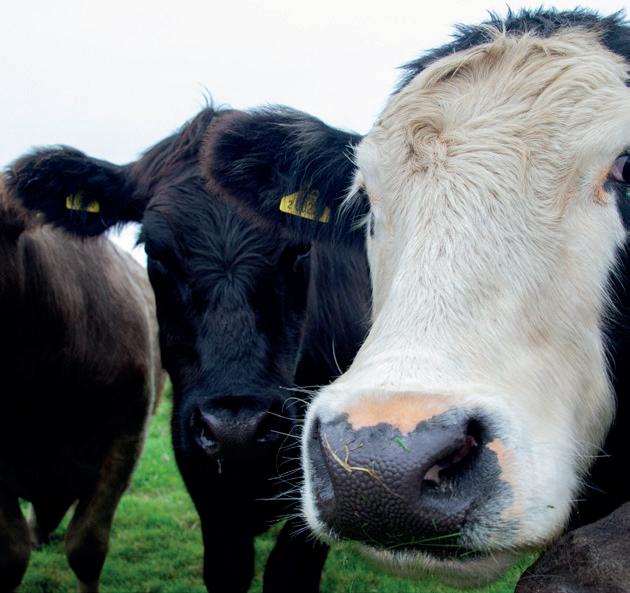
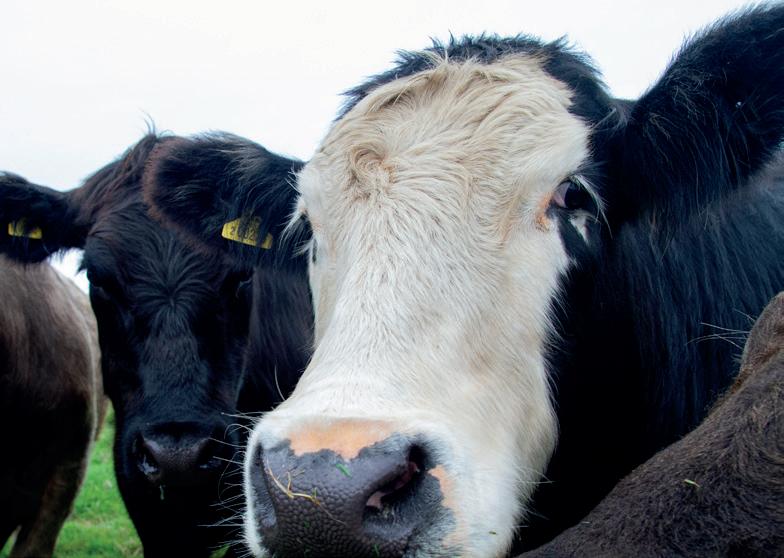
Bill enable the delivery of the right support package – in terms of measures and funding.
That means having the flexibility
We, on behalf of our members and the wider agricultural industry in Scotland, are doing all we can to ensure all the secondary legislation that flows from the Bill is subject to the required consultation and scrutiny.
flexibility to deliver for high quality agricultural production, as well as meeting policy ambitions around rural communities, climate and nature restoration.
Critical to meeting the Bill’s stated purposes is a sustainable and profitable agricultural industry.
to support different farming and crofting activities - by land type, geographic region, enterprises, etc. – using the scope within the Bill through secondary legislation. The Bill is not the place for specific statutory targets or prescriptive outcomes.
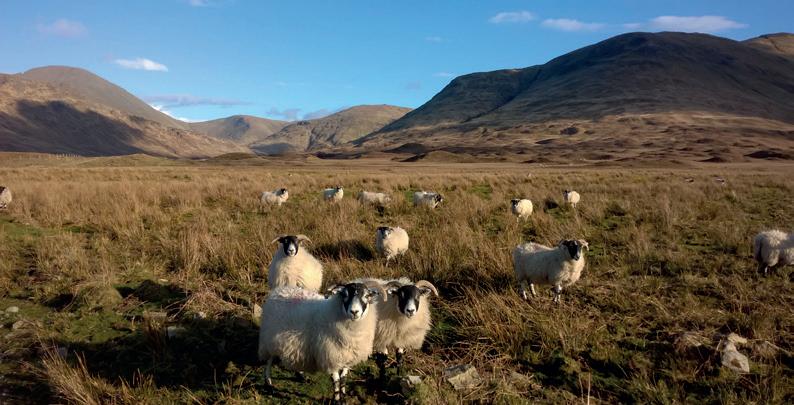
The Bill creates a framework to provide broad powers, with much of the detail of implementation being delivered by secondary legislation. While that provides the flexibility required, it is also vital that there is robust consultation ahead of detail then set by secondary legislation, as well as robust Parliamentary scrutiny of the subsequent regulations.
The context of the Bill must also be placed within the ongoing and prospective legislative reform within the wider land use and environmental policy landscape – covering areas such as land use, land reform, and biodiversity matters. The interaction and overlap between aspects of the policy agenda must not be overlooked. There must be a consistent and aligned approach across all policy which simultaneously affects agricultural, land use and rural interests.
Flexibility needs to be balanced against ensuring there is clarity in legislation, sufficient parliamentary scrutiny, and meaningful consultation with those most directly affected by policy choices – farmers and crofters.
As we know, the Bill itself provides neither detail nor certainty. We all want the detail of continued on p28
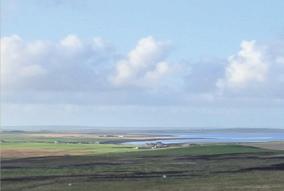
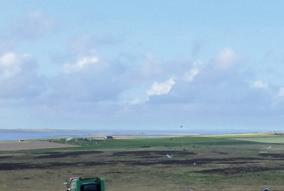
continued from p27
proposed measures and how they will operate in practice. Without this, it is difficult to understand and assess their likely impacts, particularly on those working in the sector. A support framework made up of significant volumes of secondary legislation will be challenging for those directly affected.
That’s exactly why we, on behalf of our members and the wider agricultural industry in Scotland, are doing all we can to ensure all the secondary legislation that flows from the Bill is subject to the required consultation and scrutiny. But it’s equally important that vital secondary legislation doesn’t get delayed or derailed by parliamentary processes or used as a political football.
At critical points, the Bill requires ministers to consult before making regulations. The importance
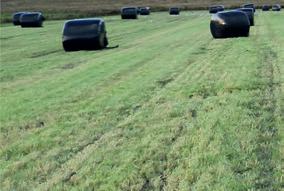
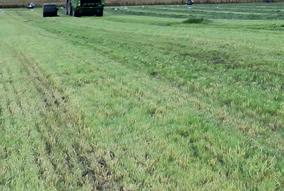
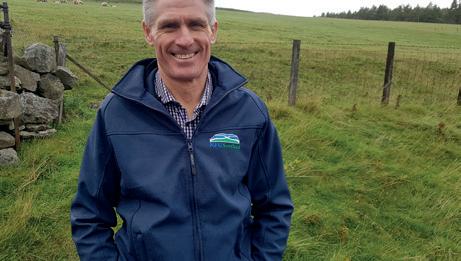
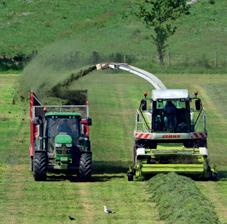
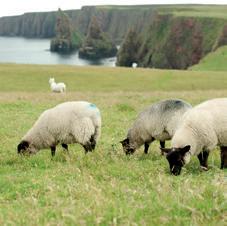
There is no doubt that this is an intense and very complex process. But we cannot leave it to others to ensure the interests of our members and Scottish agriculture are not eroded, diluted or removed.
of robust consultation on such secondary legislation, to allow scrutiny and critical comment on the detail of proposed measures, cannot be overstated – and we will ensure that happens.
After consultation, secondary legislation must be scrutinised by the Scottish Parliament. It’s critical that we have the right checks and balances in place. It is also critical that parliamentary process don’t delay or derail the legal steps necessary to put schemes, measures and their funding in place.
As with all primary legislation, the Bill’s powers will be subject to a variety of a ‘affirmative’ and ‘negative’ procedures depending on their significance. Both require scrutiny from parliamentary committees – primarily the Rural Aff airs and Islands Committee in the case of this Bill.
The affirmative procedure means

that delegated legislation is laid before Parliament and approval by Parliament is needed before it comes into force. The negative procedure means that the delegated legislation is signed by the Minister and then laid in Parliament, when rather than needing to be approved it can be annulled.

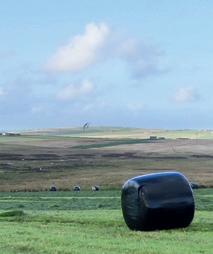
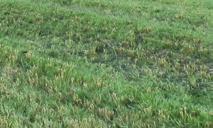
and when required, such as in the case of a major disease outbreak or extreme weather-related assistance, should be subject to negative procedure – otherwise we run the real risk of the Scottish Government not being able to act effectively when more acute challenges might arise.
Right now, we’re going through the painstaking task of our own line-by-line scrutiny of the Bill –all 34 sections, divided over fi ve parts and two schedules. We need to define our own amendments and press hard for them through the mayhem of Stage 2. Equally, we need to deflect and have dismissed those of others that would clearly work against the interests of farming and crofting.
There is no doubt that this is an intense and very complex process. But we cannot leave it to others to ensure the interests of our members and Scottish agriculture are not eroded, diluted or removed.
I will say it again, how the Bill’s powers are used is critical. However, if the right powers are not in place in primary legislation, or secondary legislation is not subject to both proper consultation and appropriate, expedient scrutiny, then the powers will be largely impotent.

This variation in scrutiny is important. We are clear in that some powers in the Bill that will be used to establish the new support framework of direct support measures, etc. must be subject to the affirmative approach.
We’re also clear that other powers in the Bill relating to the Scottish Government’s ability to step in with support as

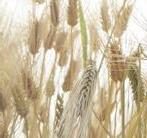

As with many Bills, politics comes into play. Clearly some are more interested in playing politics than the pragmatism required to ensure the right policy is in place for Scotland’s farmers and crofters.
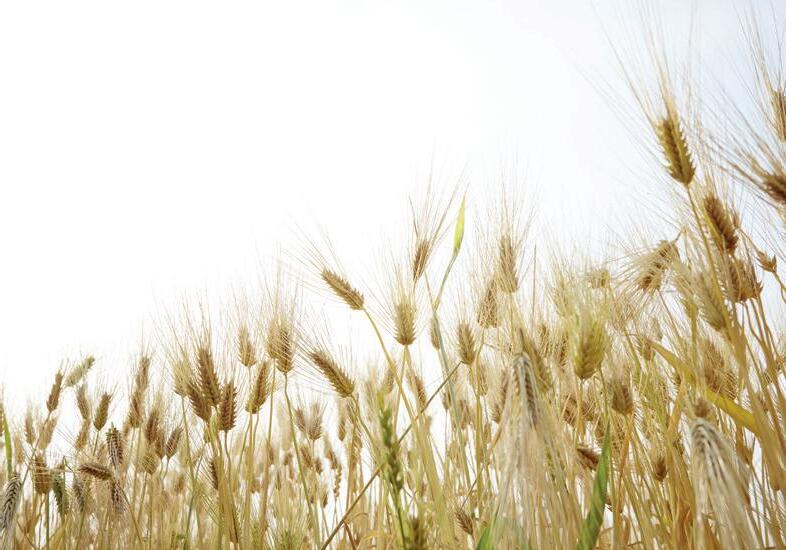






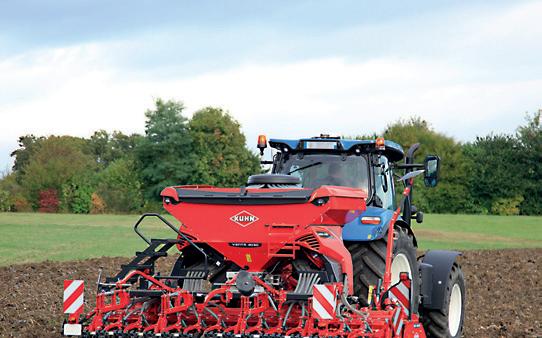


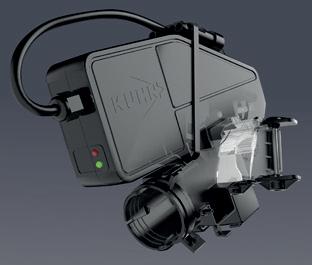






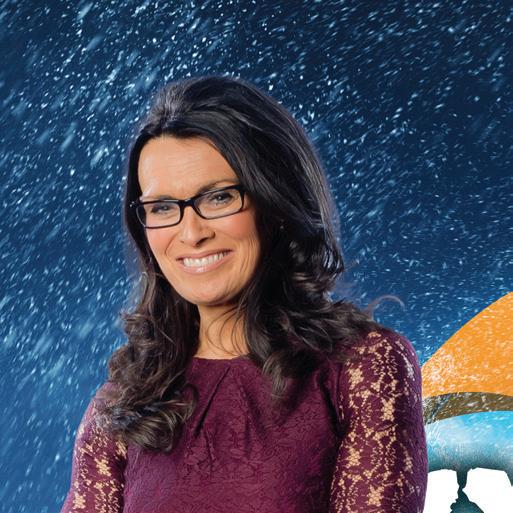



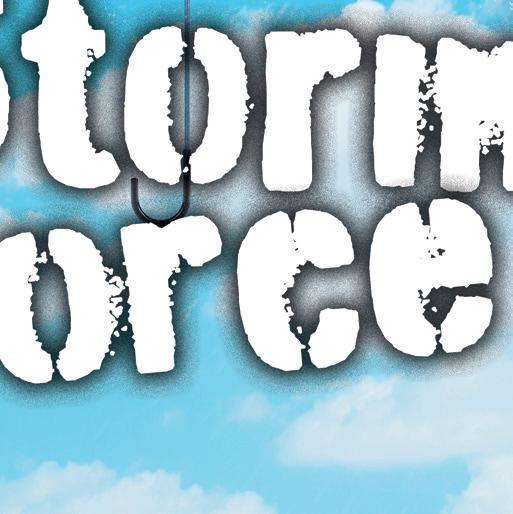
It’s not every day you get to meet one of our national treasures but on a very wet and windy day at the end of January I braced the elements and ventured to Glasgow. I was there to meet BBC Scotland’s iconic weather presenter Judith Ralston and quiz her about what was going on with our weather, ask her to give me an insight into what’s involved with her forecasting role and seek information about the new weather programme she is presenting.
Driving through the wild rain and wind, I did question my sanity. It seemed ironic that I was going to be asking about storms when it seemed I was in one – surely not? But that was affirmed very swiftly when Judith arrived in our interview room at BBC Scotland Head Office, Pacific Quay saying, “Hello. I was worried about you – another weather warning has just been issued.” I discovered later that it was actually the fringes of Storm Ingunn which saw wind speeds of 155mph recorded over the Faroe Isles.

Conscious that Judith had a lot to get through ahead of the evening forecasting, I started asking her questions.


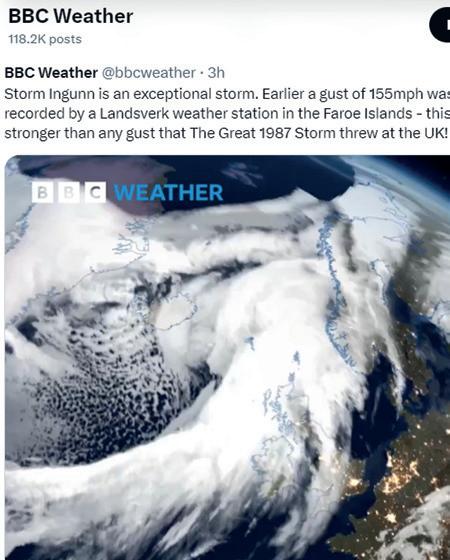




Can you tell us a bit more about the next episode of ‘Scotland’s Weather – Our Changing Seasons’ which you present?
With global temperatures rising and as our planet warms, our weather is changing. The idea behind the programme is to report from around the country on how the changing weather patterns are aff ecting people and the communities they live in as the seasons change. I’ve been hugely moved by the stories people we’ve interviewed have shared with me.

Filming with the mountain rescue team, I’ve learned so much. For example, if you get stranded on a mountain and you dial for help or send an SOS through to emergency services, it can take up to fi ve hours

For the next episode we have been fi lming up in Braemar alongside the Braemar Mountain Rescue Team. Oh my goodness, it has been a huge eyeopener for me. What these volunteers do, the skills they have, and their teamwork is phenomenal. They get a call and it’s like a smooth army operation starts. They practice a lot, and it shows.
we’re certainly experiencing shorter more forceful extreme weather events.
before anyone can even get to you. Your rescuers have to walk to you. It’s easy to forget the expanse of


countryside we have. It’s defi nitely not a job for the faint hearted and you have to be fi t. When I was there it was blowing a hoolie and freezing but the team got me involved in a practice rescue on myself. I was stretched off. You’ll see all that on the next episode! Everyone involved with the team has their own story to tell as to why they are a volunteer. I was fascinated by the variety of backgrounds and professions they had and their reasons for being involved. They are brave individuals and don’t get paid for their time unlike other mountain rescuers in other countries.
‘Scotland’s Weather – Our Changing Seasons’ next airs on Thursday 21 March at 8pm on BBC Scotland. It will also be available on BBC iPlayer You can also still pick up the fi rst programme that was aired in November, in the wake of Storm Babet, on the BBC iPlayer.
continued on p32




continued from p31
Seasons do still exist. We’re an island and have a temperate climate. We will continue to have seasons.
In Autumn, for example, we expect a certain amount of bad weather but how extreme the weather is, is changing. Our warming climate could mean the storms like we’ve seen over recent winters are something we see a lot more of.
Last winter we probably only had two named storms, but this year we have seen ten named storms already.
Our weather is linked to the Jetstream and the topography of the country. The west is mainly wetter and the east is drier. That principal won’t change but we’re certainly experiencing shorter more forceful extreme weather events.
It has been a very up and down season recently, hasn’t it? What I think your farmers will have noticed as well is that we’ve had what I call ‘stuck patterns’ over the past few years. I appreciate it might not feel like a ‘stuck pattern’ at the moment but actually it’s because we’re having a storm. What I mean is if you step back and look, we’ve got this windy weather and heavy rain going through, then it’ll clear, will be turning colder and showerier, before another high pressure builds in, bringing a drier period tonight.
It’s all very fast moving just now, but it’s the same pattern. Then we go back to cloudier with rain, and once that clears
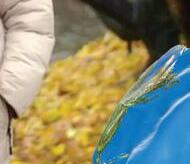
With the planet warming and sea temperatures rising we are experiencing weather events. There’s more moisture around so things are a bit more extreme. I don’t think on balance we’re seeing more of anything in particular, but what we do have is more intense. There’s more energy in everything.





through, we’re forecasting a colder and brighter spell. Although this looks unsettled, which it is, it’s actually the same pattern happening this week.





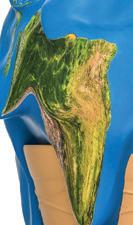





in everything. scarcity concerns







That’s how I explain it. I’m not a scientist – which is why I believe I’m quite good at my job as I try to explain it all in a simple way that people will understand. My husband is a meteorologist, but we don’t talk about weather very often – it’s more like ‘OK, who’s picking up the kids?’



spell. Although this looks I’m quite good at my job as I try understand.







In June 2023, Scotland recorded its warmest summer on record but June was full of extremes. At the start of the month, we saw a heatwave which resulted in wildfires in parts of the north, water scarcity concerns and 31C recorded in Dumfriesshire. By the end of the month and into July we experienced periods of torrential rain and severe











because I know farmers and fishermen know exactly what see a pressure chart on screen menu for those who are used to
When I’m forecasting, especially the long-range ones, I always put in a pressure chart, because I know farmers and fishermen know exactly what they’re going to get when they see a pressure chart on screen even for only 15 seconds or something. It’s like an instant menu for those who are used to working outside.



















Dumfriesshire. By and more frequent rain. and could become less predictable Meaning




Every 1C rise in global temperature can mean around seven percent more water in the atmosphere which potentially means heavier and more frequent rain. Our weather is changing and could become less predictable and more extreme. Meaning we could have warmer yet wetter








The Jetstream is driven by the temperature contrast between the two poles and the equator creating winds high in the atmosphere that control the pull of the Jetstream north or south, fast or slow. As the planet warms and the ice cap at each poles melt faster than elsewhere the contract will diminish and could mean a weaker more meandering Jetstream. So instead of storms sweeping through quickly it’s possible we could see more of those blocking weather patterns that lead to wet and windy weather lasting for days on end.)





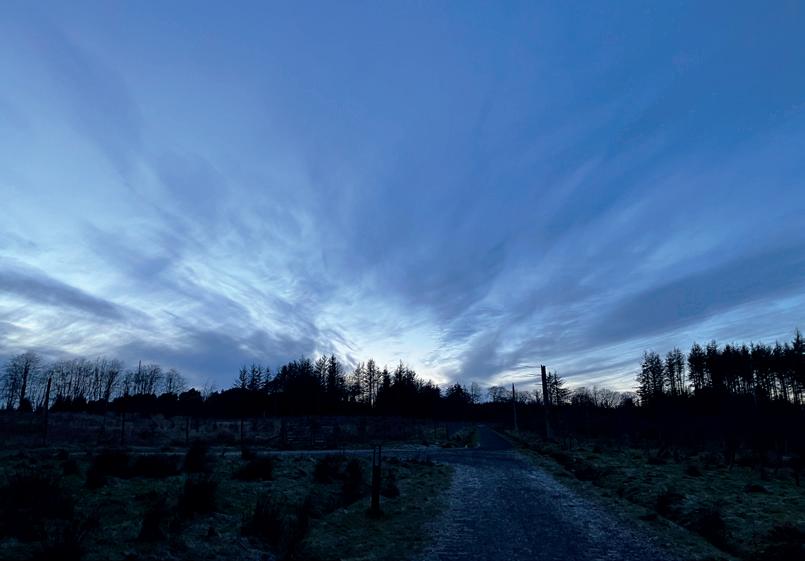

Viewers will be familiar with our Weather Watchers who regularly send in photos and weather updates from where they live. Their images are used as the backdrop to our forecasts. I find the weather watchers a terrific resource and great way to just tell the weather story because you can show one of their photos and say for example ‘well look at Shetland, they had the sunniest place in the UK today, here you are here’s the sunshine, whereas the rest for the rest of us it’s been bleak….’.
I can really relate to places having been lucky enough to have visited most parts of Scotland, however, the only place I’ve yet to visit Orkney – it’s on my bucket list.
Please, if any of your NFU Scotland members want to send in their photos to the Weather Watch please do so. It will be great to see them and will also give me a reason to mention the location and weather story.
I’m very active on X and would always recommend following the BBC Weather feed. I’ve actually got a quite a few farmers following me and I’d love to have more. They are so knowledgeable when it comes to talking weather.
While I don’t use a weather app, I’d obviously recommend following the regular BBC weather updates on TV, radio or online. I am aware that the mountain rescue team in Braemar follow the Met Office and I’ll watch the Met Office very closely too.
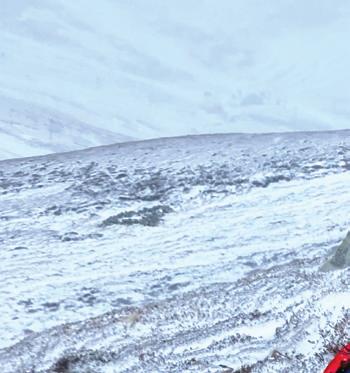
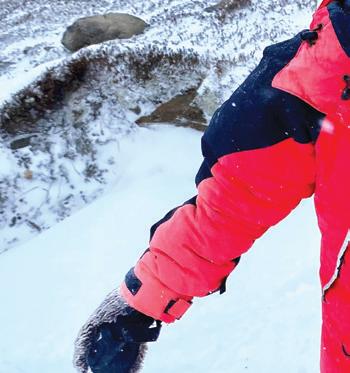

I think storm names are really positive. That’s quite a new development but I think it means that people can, for example, link things back to a named storm to recollect events, or act as a specific date in calendar when liaising with insurers. More importantly it makes people sit up and take notice of what is to come.


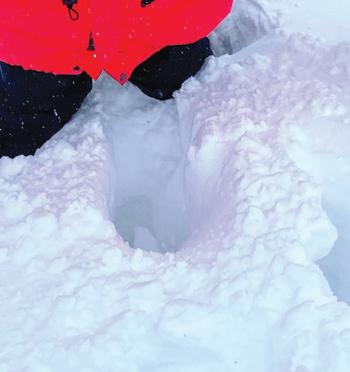

The warning system is really good as well because people can get a heads-up and plan journeys, activities, work, etc. prior to going out. This is especially beneficial in winter when you have ice warnings for example.



My favourite season is summer because I love the long nights. When you have to get up at 3am for an early shift and it’s light when you leave the house, the air smells fresh, it can make you feel good rather than miserable. We are blessed with those long nights, we pay the price in winter, but there’s money in the bank when it comes to the summer.
Sometimes in my broadcasts I’ll say things like ‘red sky at night, shepherd’s delight’ because I grew up with saying like that. One of my go-to sayings is ‘blowing a hoolie’.










I get two minutes to broadcast on the main news bullets. For me it’s really important to try and mention each part of the country when I’m doing my fl ythough. I don’t know fully what I’m going to say until it comes out of my mouth. It’s in my head but I don’t script it. Storytelling is probably the main skill we need as forecasters.
We can see the map behind us which is useful and occasionally I’ll need to check it but generally I do get it right.

continued from p33
How do you prepare your weather bulletins and is there anything you couldn’t do without?




We have somebody updating the forecast from 4am to 11pm and we’re constantly updating it on X, the app and online.
Four times as day we’ll update the visual. As a team, none of us are meteorologists apart from Callum, who’s quite a new addition. For me, it’s been like doing an apprenticeship. I’ve really learned my trade on the job. I’ve got so much experience now.
I would never have been able to study meteorology – it’s all physics and maths. My headteacher said I was a credit to the maths and science department having not turned up for a maths exam because I wanted to do music originally.
Collectively we have a lot of experience and we all really care about getting it right on the outputs and being accurate. It’s very evident in our work ethic.
We really go that extra mile at BBC to make our forecasts as accurate as possible. We spend a lot of time looking at charts and ensuring we have the right feel for the story before I go to a briefing with the London and other regional forecast teams where I can give my spin on what Scotland’s doing because they often don’t have time to do that in as much detail themselves. The London team look at the whole of UK so what I can give them about Scotland is important, I can question them too and everyone benefi ts.
All the regional teams have a lot of respect for us as we cover the whole mainland and islands. Many other regions only focus on a small area where there’s less variances.
When it comes to delivering the forecast I do it without an autocue. I like to ‘tell a story’ and in many ways I treat it like a performance which probably links back to when I was an opera singer. Hence the high heels – I don’t feel dressed without them in front of the camera. They help with my posture and I’m more confident about my delivery.


In addition, we prepare and deliver the weather bulletins for the Radio Scotland and all the local stations. The TV presenting is such a small part of the role but while I am doing the radio material, I am constantly building the ‘story’ in my head about what I need to say. With radio you have more time for some banter. Because all the local radio bulletins are on at the same time, I need to pre-record these. It makes a morning shift going really quickly. I’m in at 3.50pm, spend fi rst hour briefi ng and putting everything together, then into makeup for morning slots, into the studio, record the fi rst bulletin and then record the radios. It absolutely full on.
I would encourage anyone who wants to do this job to develop their communications skills.
I’m always encouraging young ones who are interested. I do some mentoring and I feel it’s really important to encourage them.
We would have talked for hours more but decided we’d have a quick look at a studio set, before heading back to our respective ‘offices’. Judith would love to do one of the future ‘Scotland’s Weather – Our Changing Seasons’ looking at the impacts they are having on farming. Watch this space but in the meantime do remember to check out the programme being aired on 21 March.
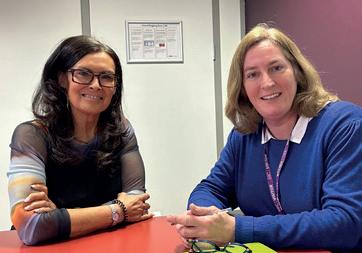


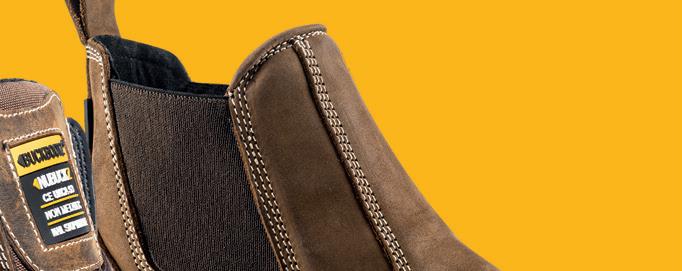




buddies, in fact although they are not identical they could be twinz.
They share very similar uncluttered good looks and many other features and characteristics - all born of their Buckbootz pedigree and a commitment to safety which is in the DNA.
The safety and comfort specification is one which any footwear family would be proud of.
Go to www.buckbootz.com.
To find your nearest Agricultural Merchant stockist call 01382 82 82 00 or email info@buckbootz.com
• Dark Brown Crazy Horse Leather
• Super lightweight
• 100% metal free
• Waterproof
• Antistatic
• Composite safety toecap
• Non-metallic anti-penetration NAILSTOP midsole
• Heat and Oil resistant outsole, non-marking and slip resistant with ladder grips
• Removable washable cushion insole
• Sizes 6/40 to 13/47




 Lacerz®
Dealerz®
Lacerz®
Dealerz®




REGIONAL MANAGER
Lauren Worrell
07787 434 104
lauren.worrell @nfus.org.uk
Congratulations to John Semple recipient of the Argyll & The Islands Stalwart Award for 2024. The Stalwart award, created in 2016, recognises those who have made a significant contribution to agriculture in the area. The award was created in memory of Bert Leitch, from Lagganulva, and Lachlan MacLean, from Knock.
Having worked alongside both Bert and Lachlan, John has been involved for over 25 years in the Mid Argyll branch including six years served as its Chair. John was Argyll & the Islands’ Regional Chair 2011-2015 and served as Mid Argyll’s



 REGIONAL POLICY ADVISOR
REGIONAL POLICY ADVISOR
Lee Smith
07554 741 030
lee.smith @nfus.org.uk
Regional Board representative for many years in addition to this.
John’s dedication to both the region and NFU Scotland has never wavered and often included carrying out farming duties in the early hours of the morning before travelling to Edinburgh to attend a meeting before returning late into the evening to start work again with the rest of the day’s duties still to carry out.
When not at a NFU Scotland meeting, John has always been a real part of the community helping with the Mid Argyll Show, Knapdale sheepdogs and even coaching rugby!
Overall, a working lifetime where close to every waking minute had been devoted to agriculture and a large amount of what should have been personal time, given to NFU Scotland for the collective benefit of all of its members. John was presented with the Stalwart quaich at the recent Argyll and Islands Regional Board meeting by Sybil MacPhearson, Regional Vice-Chair.
Also at the Regional AGM we saw a change of guard of ELU committee rep with Angus MacFadyen having served his time, being replaced by Jamie Mellor. We would all like to thank Angus for his years of service and welcome Jamie into the role.
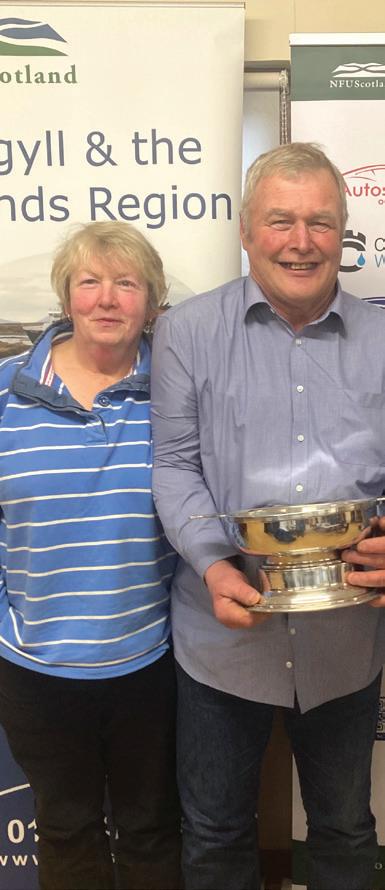
The collection of evidence for the Assessment of Livestock Welfare on Northern Isles Ferry Journeys has now been completed. Northlink and SRUC worked closely together to co-ordinate the evidencing of journeys. Shetland members are waiting for the outcome on their findings. Stakeholders will be invited to an initial meeting at some point soon.
Recent winter storms caused havoc for local crofters and farmers. Heavy snowfall and severe gales gave crofters additional winter chores including;
• providing extra feed for livestock over the snowy period
• providing extra welfare checks on their stock to ensure all livestock was safe
• ensuring sheds and byres were safe and secure from the wild windspeeds of over 80mph
• clearing roads to ensure they get to their livestock whilst helping local neighbours. With reports of members’ sheds being blown away, the beginning of 2024 for has been very eventful for some.
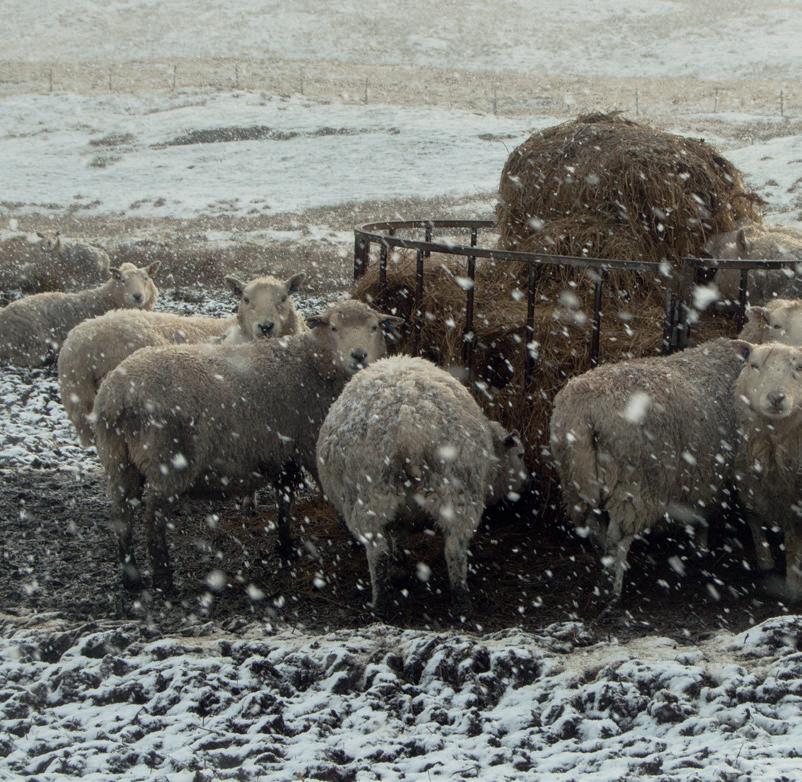
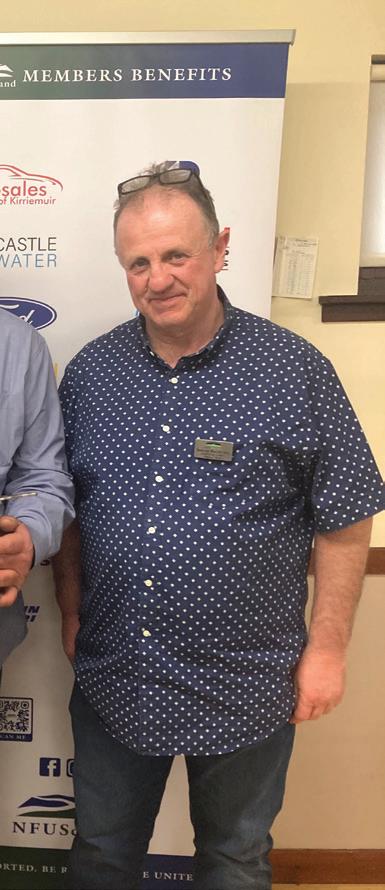
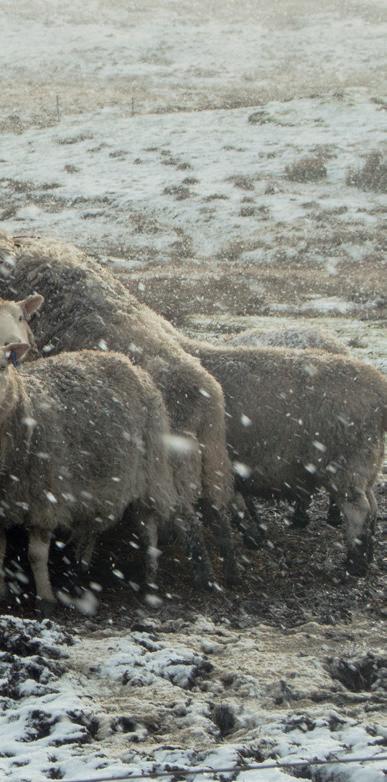
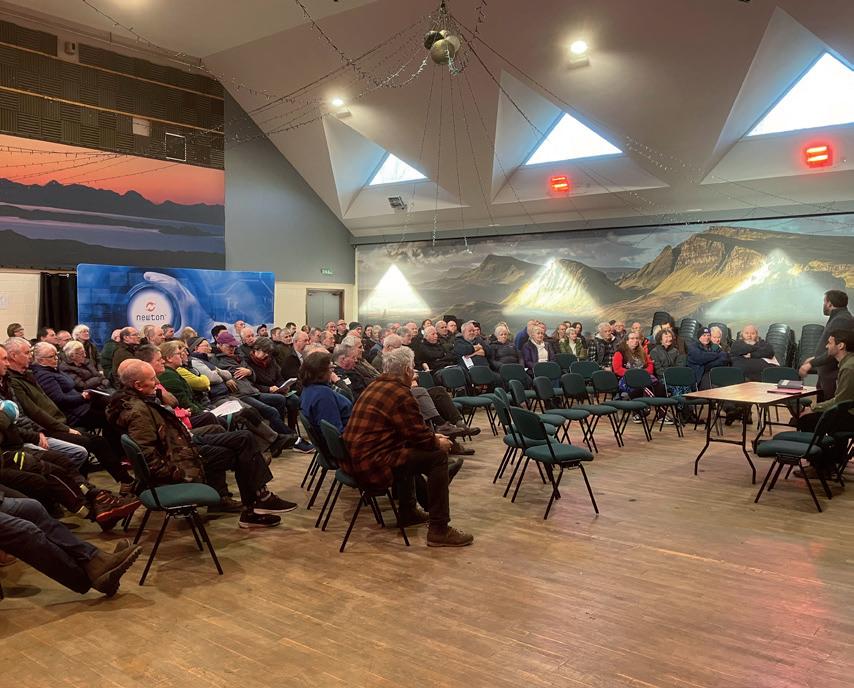




Ian Wilson
07775 915 988 ian.wilson @nfus.org.uk
One of the things that seems to have come to a head over recent weeks has focused on National Parks and proposals for new National Parks within Scotland. We have four of these proposed areas within our Highland Region and the message I’m getting from the majority of our membership is that they appear very against the proposals. Hopefully all members are feeding their views into the proposal groups directly. We can only hope that those behind these initial consultations listen to those on the ground and do not take these proposals forward as full applications to Scottish Government.
The message quite clearly coming from farmers, crofters and a lot of others in the land management sector, is that the
Other things that I am hearing about seem to be that store cattle have kicked off the year at record levels and prime lambs are on the move upward too. Hopefully this will translate into profit within these sectors. The wet autumn is playing havoc in the seed barley market, particularly the malting
current National Park in the Cairngorms has largely failed to deliver the benefi ts to farmers and crofters that were promised during its introduction proposals over 20 years ago. Many feel that the Park Authority provides another lair of governance that is seen as more controlling rather than aiding businesses in our sector. The introduction of beavers to the Spey Catchment just prior to Christmas has certainly brought the issue to the forefront of many people’s minds.
There has been a re-launch of Cairngorms Farmers Forum with the promise from Cairngorm Park Authority that they will work with farmers and crofters with increased dialogue so that the Park is working for those living and working within the Park area. The proof of the pudding will be in the eating - we will wait and see.
varieties, with seed scarce and price rising rapidly due to much of the winter wheat growing land in both Scotland and England unsown and looking to spring barley as a replacement crop.
As always anything that you think NFU Scotland can be of assistance to you with - please get in touch.



REGIONAL MANAGER
Mhairi Dawson

07718 425 053 mhairi.dawson @nfus.org.uk

One of our NFU Scotland priorities, nationally and regionally, is to encourage the Next Generation into agriculture and the Union. Dumfries and Galloway region is full of keen, hardworking, capable, young farmers as demonstrated by our Next Generation Panel Night held in January in Castle Douglas (pictured). We heard from a new entrant with no agricultural background, a tenant farmer, a family business in a contract farming agreement and a diversifi ed family business. Such a range of experience but with one thing in common - they love what they do and they want a positive vibrant future for agriculture.




REGIONAL MANAGER
Lindsay Brown
07780 441 750 lindsay.brown @nfus.org.uk
In January the Regional AGM was held. This was a coming together of all the branch and commodity representatives. After three fabulous years Debbie Playfair stepped down as Regional Chair, and Sally Williams and Willie Thomson also stepped down from the Milk and Combinable Crops Committees. Thank you to them all for all the excellent work they had done on behalf of the region.
I want these people, and all the others like them, to stay in our industry and I also want to encourage them to be a part of our regional activity so they in turn can infl uence the agricultural landscape as they come to the fore of their agricultural businesses.
Our young farmers; your grandchildren, children, nieces, nephews, brothers and sisters and friends; have a lot to bring to the table. But we need more of them to share their experiences and opinions with us. We need more of them at our meetings and discussions so that we can learn from each other. There are some excellent people already working very hard in the regional and they are
We welcome new Regional Chair James Playfair Hannay, from Morebattle Tofts, Kelso. Your Regional Representatives for Commodities are:
Combinable Crops
Neil White and Alistair Stewart
Livestock
Roy Brown and Robert Neil
Legal and Technical
Jamie Smart
Environment and Land Use
Peter Douglas
Less Favoured Area
John Davidson
Pigs Jamie Wyllie
Next Gen Ben McClymont
Milk Sandy Mitchell
Thank you for the continued support of all the branch reps and group secretaries for their commitment to the Regional Board. We look forward to another busy year.
ready to help and encourage our next generation of NFU Scotland members.
My plea to you is that if you are a main member holder, and have the option, please consider making your NFUS membership a Family Membership. This allows you to add your family members who are over 14 for FREE as long as they do not have a farm/farming business in their own right. So please, add them on! You can add children, your spouse, business partners or a farm manager who manages the land, to your subscription. You can do this on the website at joinnfus.org.uk (scroll down to “Add Family Membership”) or speak to your Group Secretary, head offi ce or myself.
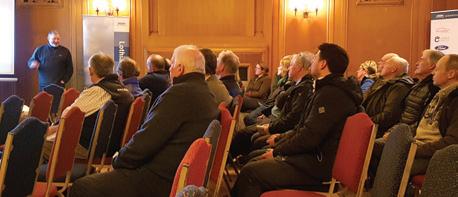
We held an open member meeting and heard from Steven Thomson SRUC as an expert advisor to Scottish Government. He was able to share his perspective on what we could have to look forward to with the Agriculture and Rural Communities (Scotland) Bill. This was followed by a discussion on species management particularly badgers and beavers. Euan Walker Munro from Angus manages his land alongside beavers. He highlighted the amount of work involved in managing the beavers’ activity and the damage done to agricultural land. Stan Whittaker from NatureScot highlighted the licensing and control guidelines available. As the number of license applications are low, they do not perceive there to be a problem. This issue was discussed as some length. Penny Middleton, Policy Manager was able to feed into the discussion.
FORTH & CLYDE




REGIONAL MANAGER
Sheena Foster
07789 796 582
sheena.foster @nfus.org.uk
At the recent AGM, Mark Donald from the Balfron and Menteith branch was re-elected for the fourth year as Forth and Clyde Regional Chair with Rona Nicolson, Balfron and Menteith branch also reelected for the second year. We said a sad farewell to Jen Craig, Clydesdale
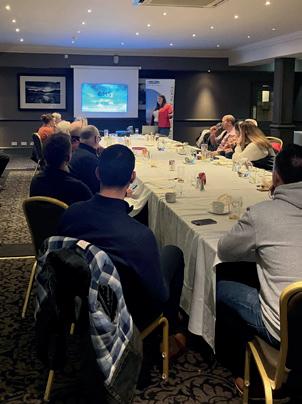




REGIONAL MANAGER
Kate Maitland
07919 001 23
kate.maitland@ nfus.org.uk
branch who stepped down as Vice-Chair after serving a three-year term and thank her greatly for all her contributions over the years.
The following representatives were also appointed at the AGM and will represent the Region at National level:
Combinable Crops:
Willie Harper (Renfrewshire)
Environment and Land Use:
Freda Scott-Park (Dumbarton and Kilpatrick)
Legal and Technical:
Tom French (Clydesdale)
Less Favoured Areas:
Sandy Taylor (Balfron and Menteith)
Next Generation:
Michael Allison (Clydesdale)
Livestock: David Mitchell (Clydesdale)
Milk: Alistair Nicolson (Balfron and Menteith) and Andrew Paterson (Balfron and Menteith)
Poultry: Nicolas White (Clydesdale)
The Regional Board would be keen to hear of any ideas and events you would like to see introduced, so please done hesitate to contact a committee member or myself.
Following our AGM we had an open meeting with Sarah Millar, Chief Executive of QMS, who gave a very informative and insightful presentation on her recent trip to COP28 in Dubai. Sarah joined the British Meet Processors Organisation to represent the red meat industry at an event where many of the meetings included plant-based treaties, lab grown proteins and veganism.
Following on from the Regional AGM, your representatives at national level for the coming year have been appointed. They are there to represent you and your region, so make sure you use them.
Caroline Millar from the Angus Branch stood down as the Regional Chair and Robert Bell from West Fife and Kinross Branch was appointed. The appointment of Vice-Chair will be considered in due course. Many thanks to Caroline for her dedication and commitment to the region, it’s been really appreciated.
REGIONAL BOARD
Chair: Robert Bell (West Fife and Kinross)
COMMITTEE/ WORKING GROUP MEMBERS
Livestock: John Ritchie (Crieff Branch)
Milk: Sandy Milne (Angus Branch)
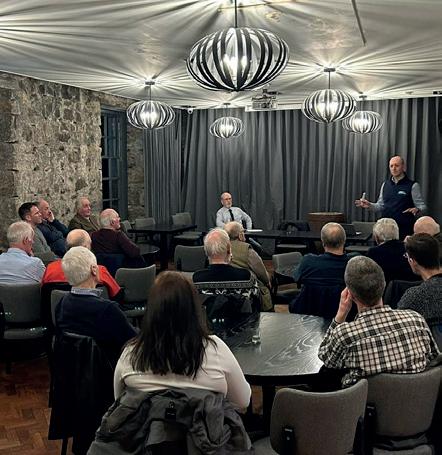
Members of the Renfrewshire branch recently got to meet NFU Scotland Chief Executive, John Davidson when he attended a recent branch meeting. Members heard from John about the observations he’s made since taking post and highlighted the workstreams that NFU Scotland is currently working on. The fl oor was opened and a vast array of questions and discussions took place.
Environmental and Land Use: Euan Walker Munro (Angus Branch)
Legal and Technical: Hamish Coutts (Perth Branch)
LFA:
Finlay McIntyre (Highland Perthshire Branch)
Combinable Crops: Amy Geddes (Angus Branch), Dave Bell (North East Fife Branch)
Poultry Working Group:
Matthew Steel (Angus Branch), Robert Thompson (Angus Branch)
George King (Angus Branch)
Potatoes:
Andrew Gray (Angus Branch), John McLaren (Crieff Branch)
Soft Fruit and Field Veg:
Peter Thomson (Blairgowrie Branch), Martin Cessford (Angus Branch), James Rome (North East Fife Branch), James Porter (Angus Branch), Mike McLaren (Blairgowrie Branch), Jen Marshall (Blairgowrie Branch), Bill Stewart (Perth Branch), Ian Brown (North East Fife), Sheena Stewart (Perth Branch)
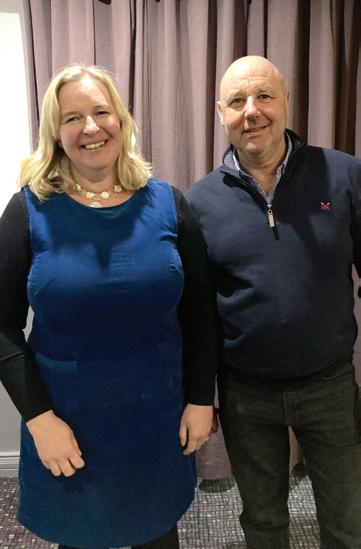
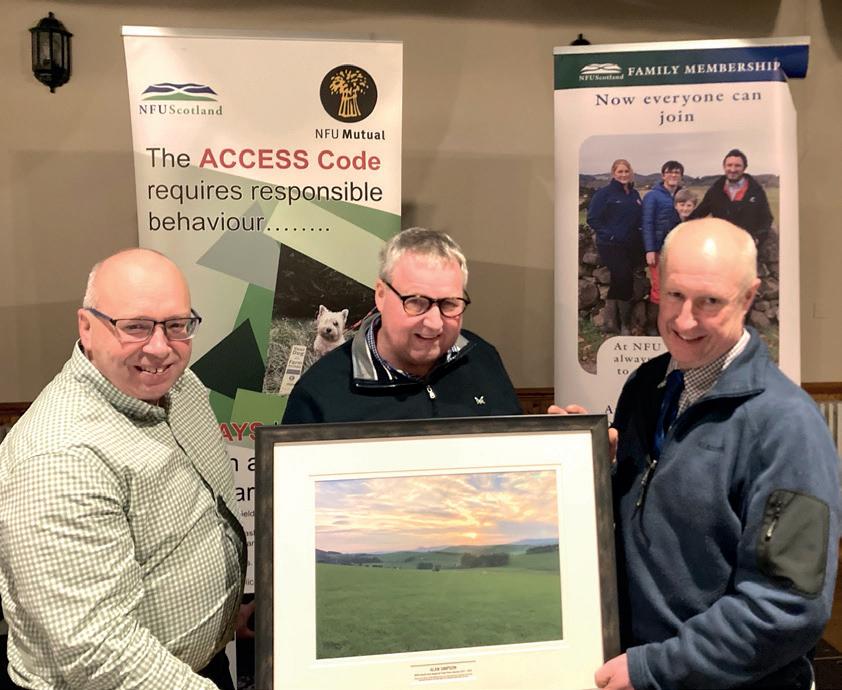




Lorna
Paterson
07786 860 453 lorna.paterson @nfus.org.uk
Our Regional AGM was hosted at Lochter Activity Centre, Oldmeldrum. Thank you to all members, NFU Mutual Group Secretaries and staff who braved the tricky weather conditions to participate.
Alan Simpson stood down as Regional Chair after three years at the helm and was presented with a framed print of Tap o’ Noth which was photographed from Mains of Leslie Farm and expertly framed by Country Frames Gallery at Leslie. Alan is succeeded by Kevin Gilbert from Womblehill Farm, Kintore. Retiring Vice-Chair, Robert Hay, from Banchory (formerly Luncarty Farm, Turriff ) was presented with a hotel voucher as a token gesture for his hard work and support

throughout. Two new Vice-Chairs were appointed: David Greer from Seafield Estates and Danny Skinner from Lazyfold Farm, Insch. Retiring Livestock Chair, Gary Christie (Glass) and retiring Less Favoured Area Chair, Cameron Ewen (Cornhill) were each thanked for their fi ve-years of service. Andrew Robertson (Coull) and Alan Simpson were appointed to lead our Livestock Committee.
Sandy Tulloch from Hillies, Lumphanan was appointed Less Favoured Area (LFA) Chair. Sally Glennie (Keig) has been proposed as a co-optee for LFA as we recognise the need for young, female members to become more involved. All other roles, committee and working group Chairs remained as previously.











Sandy Garvock from Men United SCIO met members and showcased the great work the organisation does locally. We’ll be formally working on mental health with Sandy in a completely unique peer capacity which is unavailable from other mental wellbeing organisations. Our peer support offerings will include access for all ages and genders within the local agricultural industry, as we recognise many employees in upstream and downstream companies suffer too. Farmers and their family members are at the coalface, but they frequently share their worries with vets, hauliers; agri-sales representatives; consultants, buyers and dealers. We are all well aware of the effects that this can have upon everyone’s mental wellbeing, and peer support will be a huge benefit.
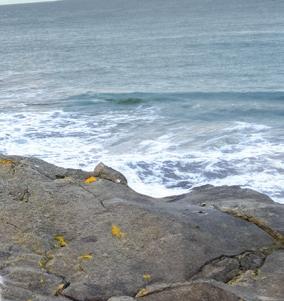
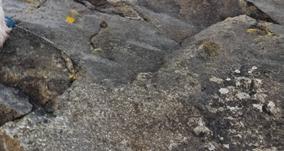
Royal Northern Countryside Initiative Co-ordinator Ali Johnston (RNCI is part of RHET) and myself (along with my canine pal, Tyne) will be doing the Mighty Stride Kiltwalk, Aberdeen on Sunday 2 June. We are raising monies for RNCI, to sustain the brilliant work which they RNCI team do. NFU Mutual Agencies in Keith, Turriff, Thainstone and Laurencekirk are our key sponsors and have generously donated a three-figure sum of monies to kickstart our campaign. Please do donate via our Just Giving page.
 REGIONAL MANAGER
NORTH EAST
REGIONAL MANAGER
NORTH EAST
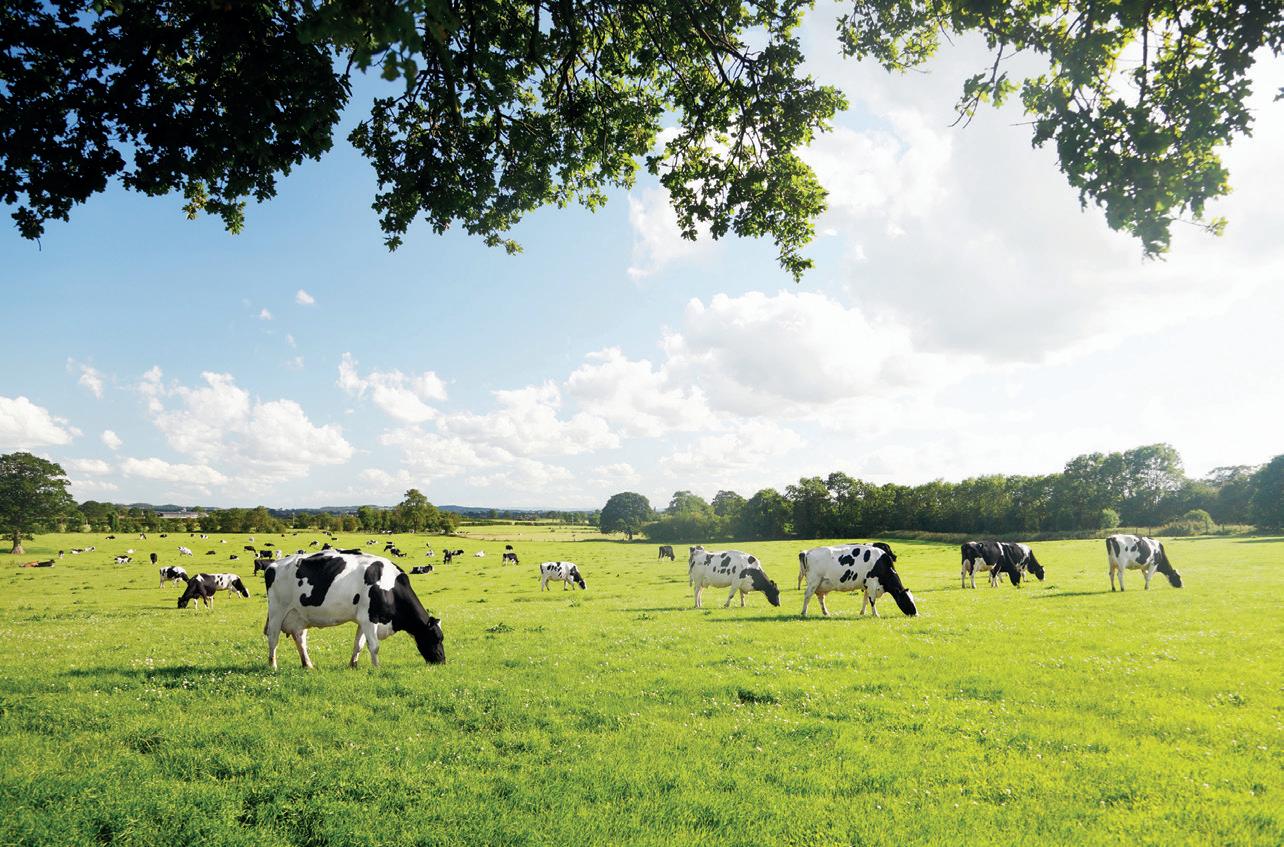
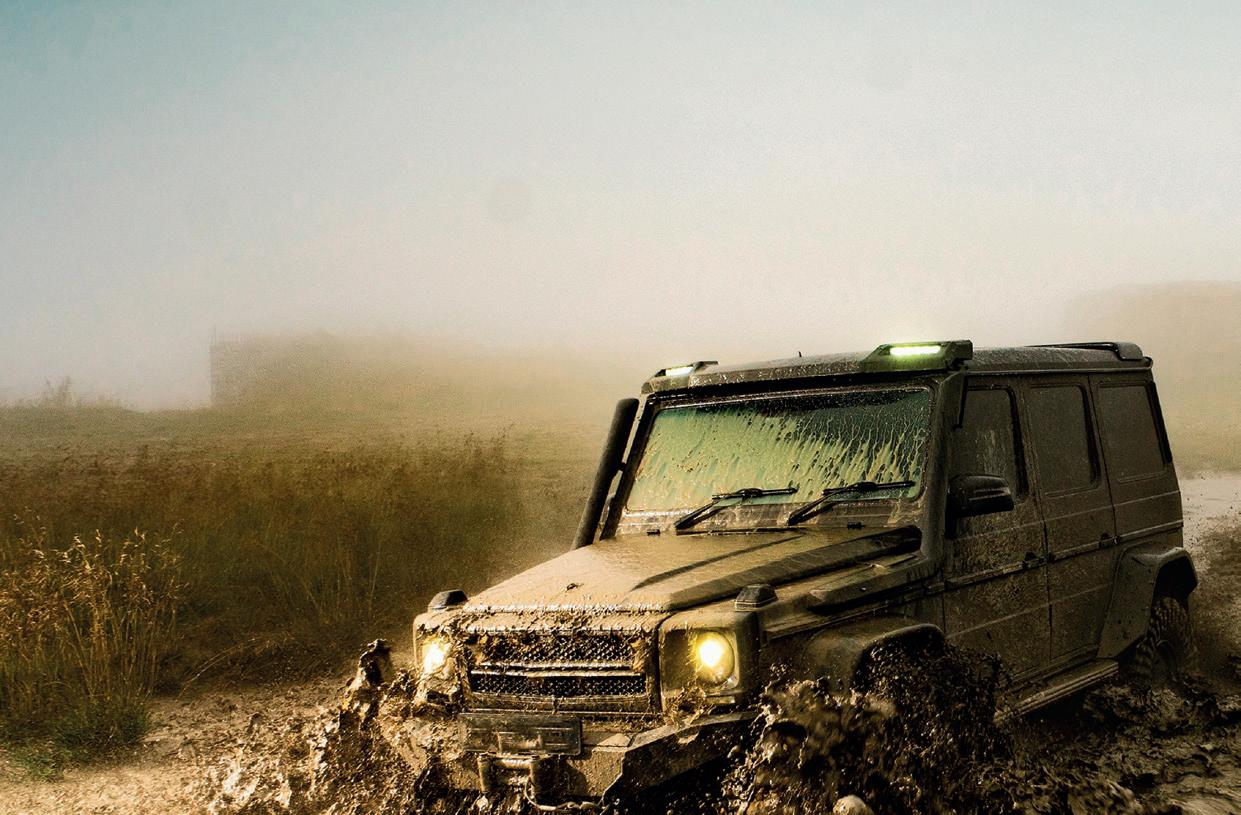
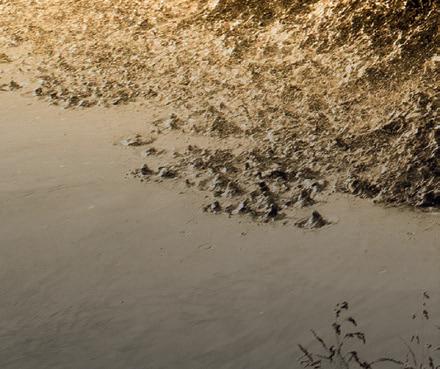
‘’Insa Eco offer a comprehensive range of recycled 4x4 tyres to suit all requirements. Manufactured in a highly advanced European tyre facility, using the most stringent quality control procedures, all products meet the highest industry certification standards.
Insa Eco renew tyres providing an ecological, economical and safe solution in today’s world, retreading saves energy and avoids pollution.
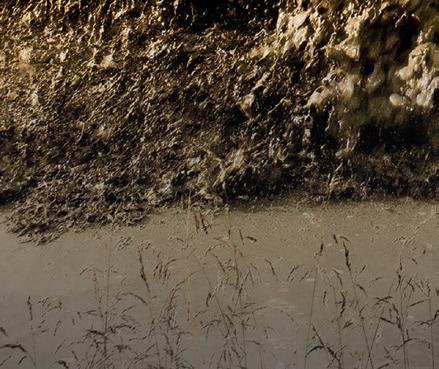








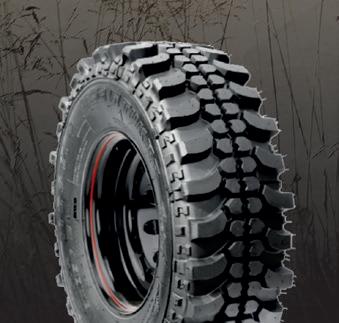



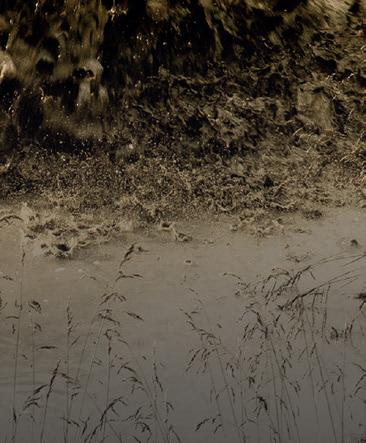





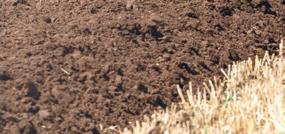
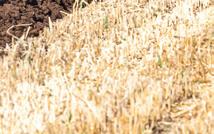


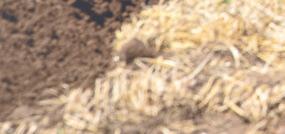
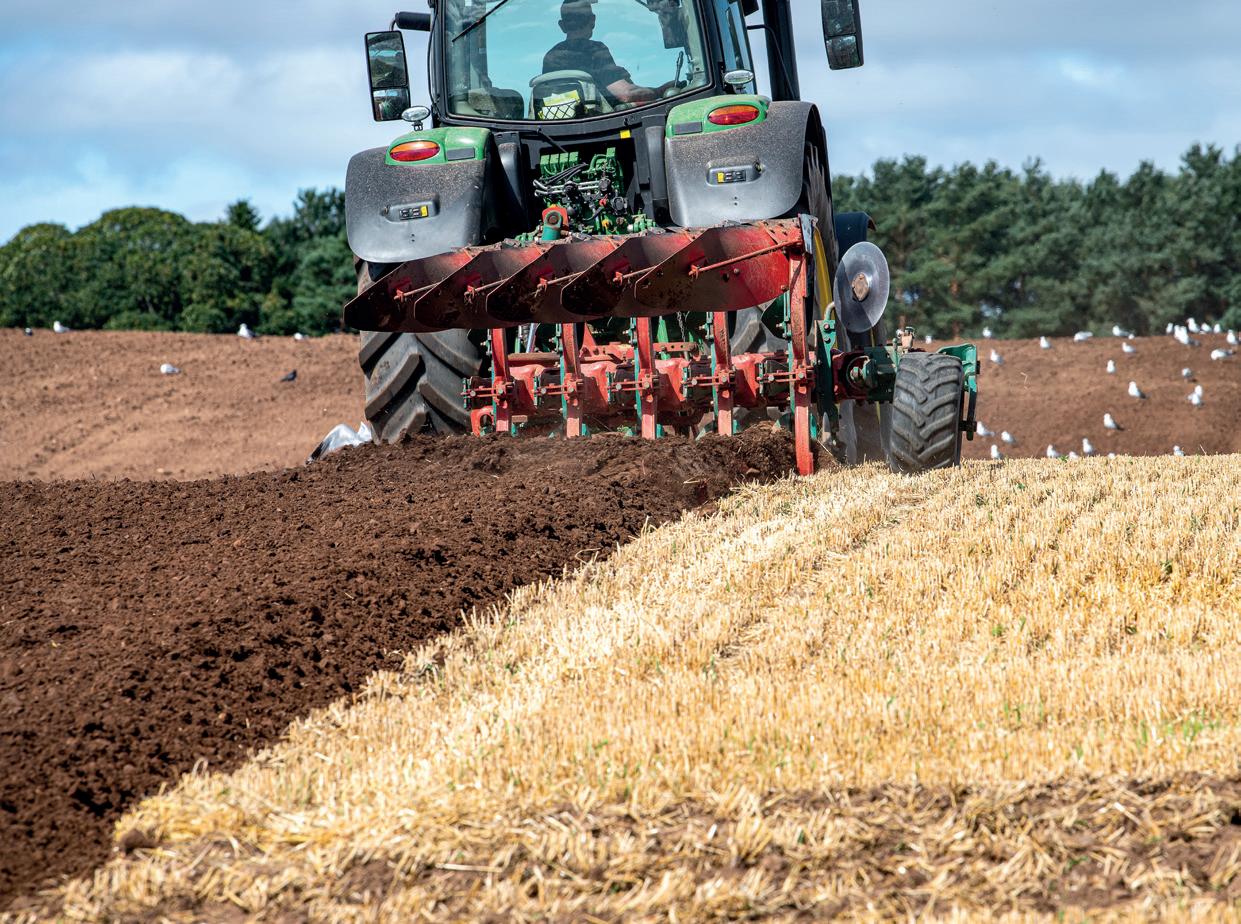
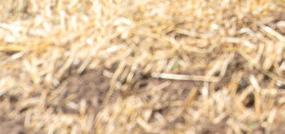
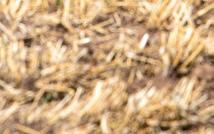


finance options and some new kit on offer from smart security technology to versatile drill offerings.
With new machinery seeming to reach ever more eye-watering levels, purchasing any piece of kit comes with a rising amount of pressure as to what the right decision might be. There was a time when a field of barley would just about cover the price of a new tractor, but now not even a whole farm’s crop will cover it, which means finance options have to be looked into carefully.
Hire, HP or buying outright?
Buying machinery ties up capital that could be used for other investments, so looking into alternatives might be a worthwhile exercise.
Contract hiring tractors involves paying a monthly/ seasonal fee for the piece of machinery and when the lease is up you can swap for a newer machine or renew the lease. Leasing agreements often include maintenance and insurance and don’t bring with
them the same burdens of owning a machine should something go wrong.
Machinery hire brings flexibility should your hectarage or situation change and it’s often useful for budgeting as it’s a fi xed amount to plan for. However, as you never own the asset it can work out more expensive over time than owning the item outright.
Hire purchasing machinery is a way of spreading the cost of an expensive purchase rather than outlaying the whole cost up front. Like leasing, there will be a monthly payment but these payments will be going towards the purchase price meaning you will own the asset at the end of the term.
Buying something on finance obviously has a higher cost than buying something outright as you are paying the lender for the convenience of spreading the payments, and you’ll normally need to pay a deposit and the VAT upfront. It’s not particularly
continued on p45
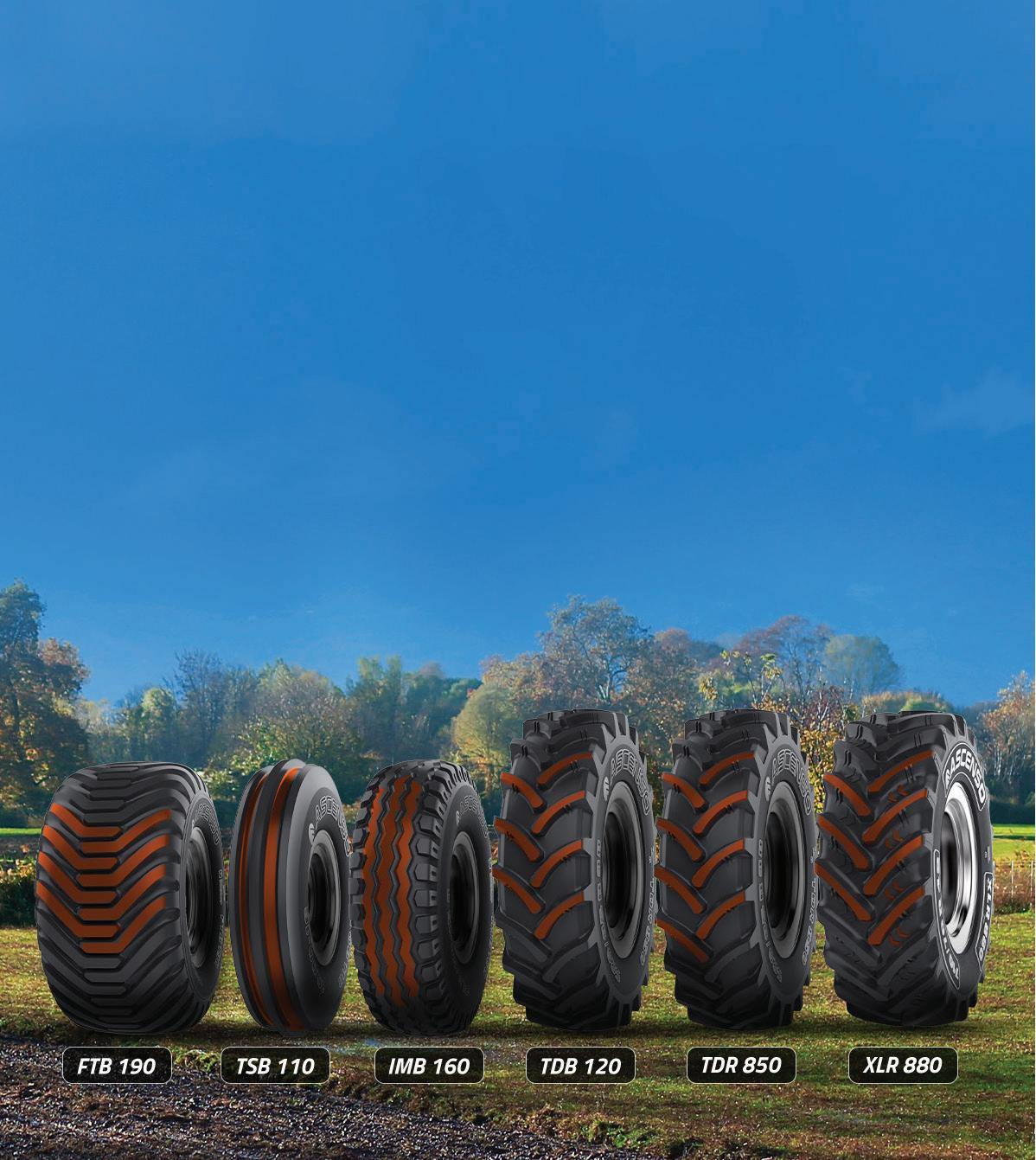

continued from p43
flexible either, as typically you need to complete the payment term before being able to sell the item.
Making these decisions also has tax implications. Leasing machinery is an operating cost and so will reduce net profi t. Hire purchase or buying outright means the machinery appears on your balance sheet as an asset. It’s worth having a discussion with your accountant as to how it effects your particular business as that can have a bearing on the decision.
Meanwhile, UK tractor registrations for the year started 26% lower than the same month last year and one of the lowest figures in recent years. Although it’s too early to say what that night mean in coming months, it is a sign of a slower market, which might mean better deals are there to be had.
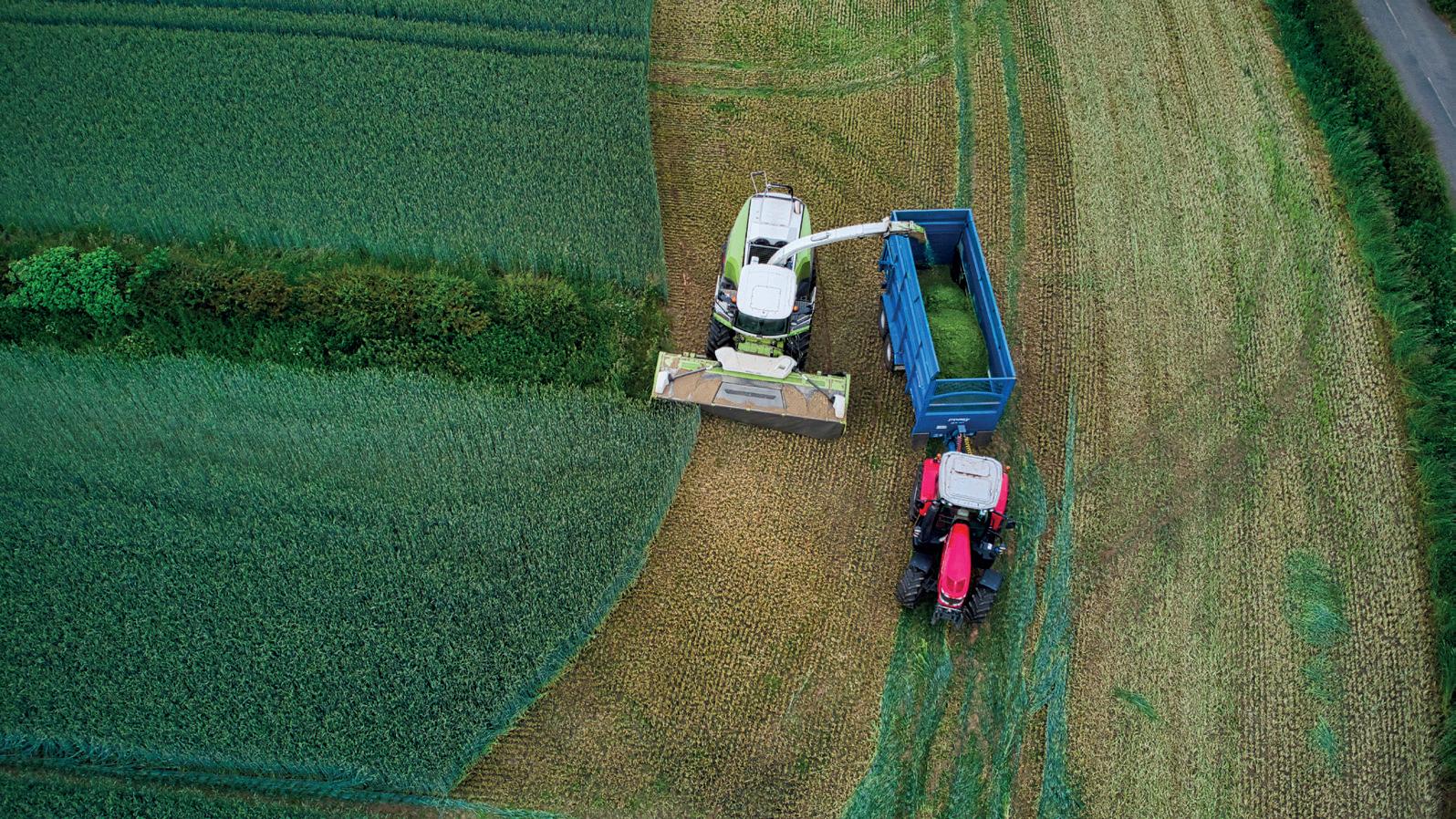
According to Cordex, for every 10,000 bales produced at least 25-30kg of plactic ends up in the field due to lost offcuts. So the company has teamed up with Polymateria to produce Biocord, an advanced type of baler twine used for wrapping bales destined for wrapping.
Although still a synthetic polypropylene yarn, it sets itself apart by being not only recyclable but also biodegradable. In practice, this means it performs just like any other high-quality twine with the same strength, length and performance customers are used to with no need for machine setting changes. However, should it find its way into the natural environment, it self-destructs into a harmless wax that can be consumed by microbes and fungi effectively returning to nature leaving no microplastics or toxins behind.
The self-destructing technology developed is triggered by sunlight, humidity and temperature, so bales have to be wrapped within two weeks of being made in the field. The company continues to work to produce other products for nonwrapped bales.
Shearwell Data Livestock Systems has launched a new cloud-based livestock management system. You can access MyFarmWorks on your phone or computer and record and manage
statutory information, weights and treatments as well as upload and download data to and from Government agencies.
Unlike previous versions of the firm’s software, the cloud—based system allows multiple users and

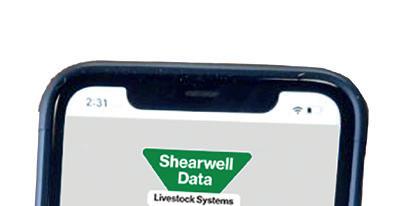
continued on p46




continued from p45
devices. Data syncs automatically between devices whenever you’re connected to Wi-Fi or mobile data and movement documents can be created, sent and printed with ease, add the company. A starter package for the software starts at £20/month with more features expected later this year.
Weaving Machinery showcased the Lynx Drill as an intermediary min-till tine drill, equipped with many of the features of the existing Weaving Sabre Drill but on a lighter, more compact frame. With a lower horsepower requirement, the Lynx Drill is suitable for small to medium tractors and offers farmers low disturbance and high output at a more affordable price. Like the Sabre, the Lynx Drill comprises four rows of auto-reset tungsten tipped tines with ‘z’ following harrows mounted to a frame set on wide flotation tyres, a 2000 litre plastic hopper and RDS Artemis Lite controls with electric metering and GPS forward speed monitoring. The Lynx is currently available in 4.8m and 6m working widths.



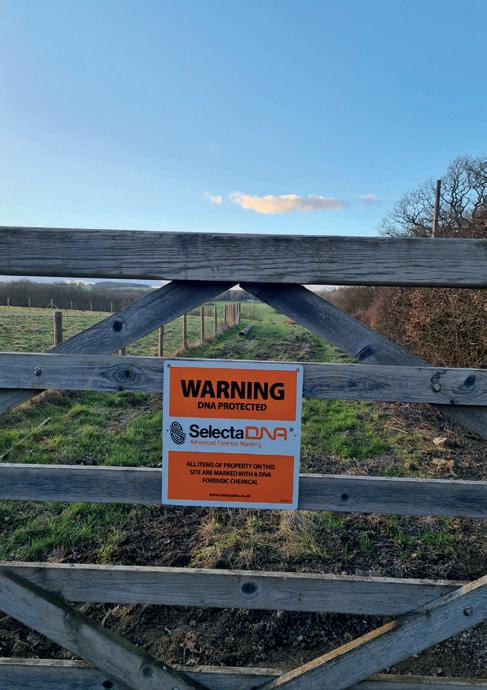
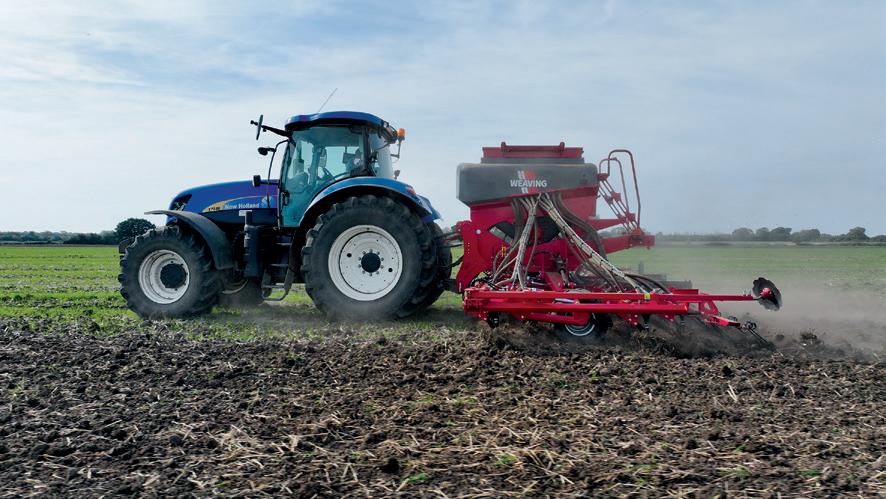
SelectaDNA is an advanced property marking kit that is designed to protect machinery from theft. It has been proven that by using this DNA marking solution, applying labels, clear ID plates on the machinery and signage around the farm that criminals consider machinery protected by it consider it to be too high risk for reselling machinery. It’s user-friendly to apply, coming in a small pot ready to be applied around machinery and implements by the farmer. A recent trial in South West Scotland supported by the NFU Mutual and the Scottish Partnership Against Rural Crime has reported a 100% reduction in thefts in recently heavily affected areas.

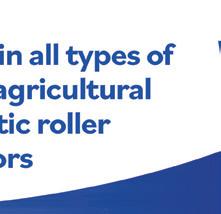



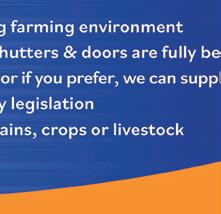





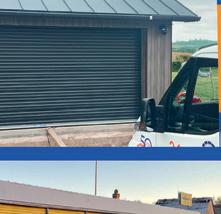







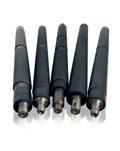




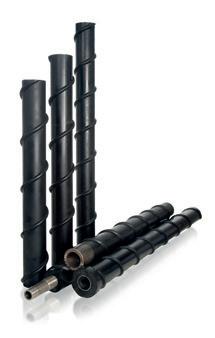




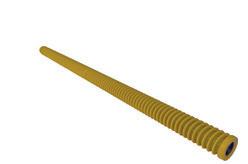






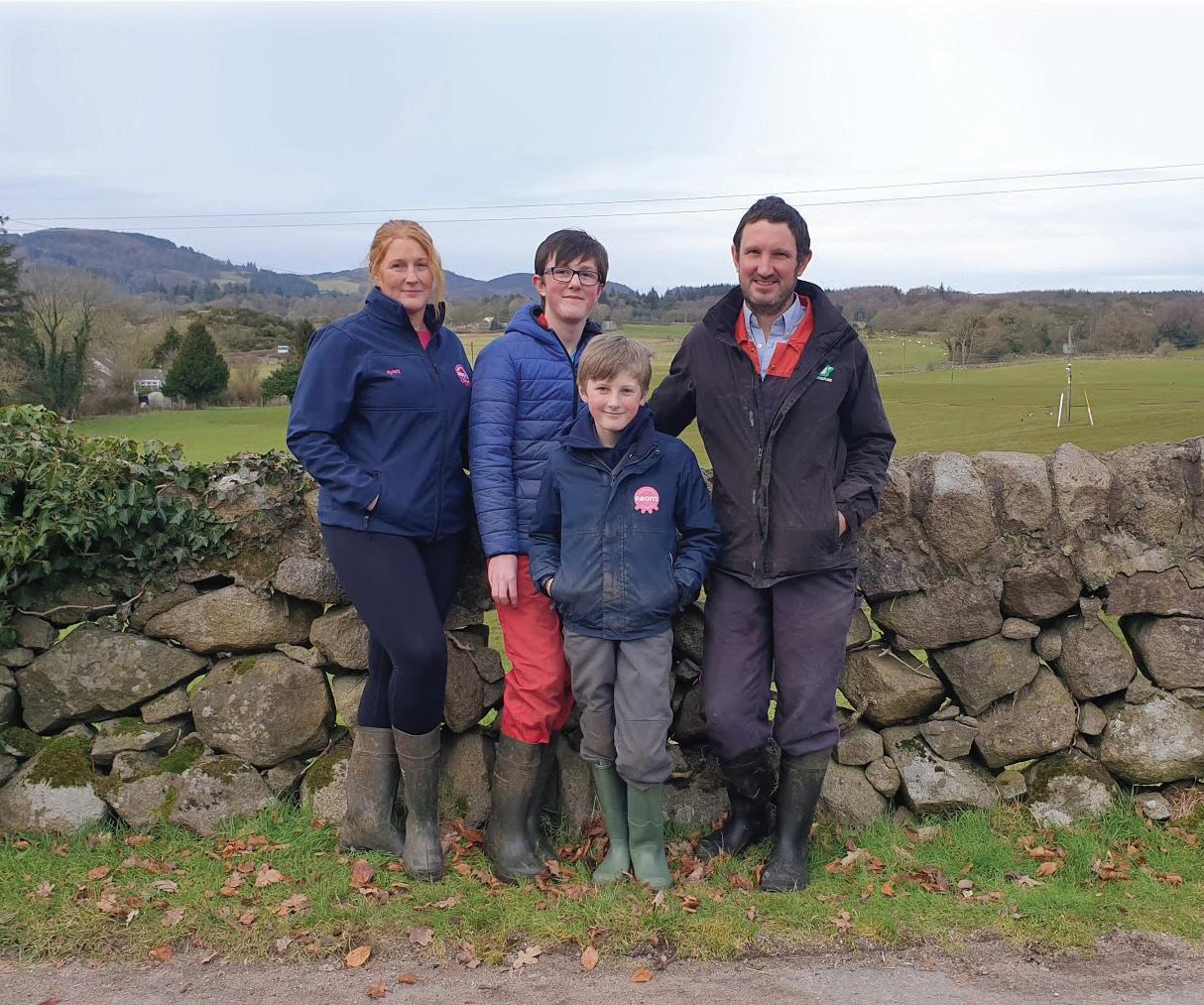




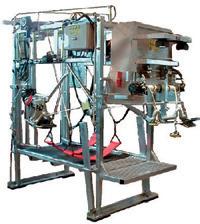
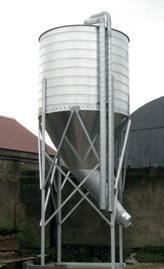
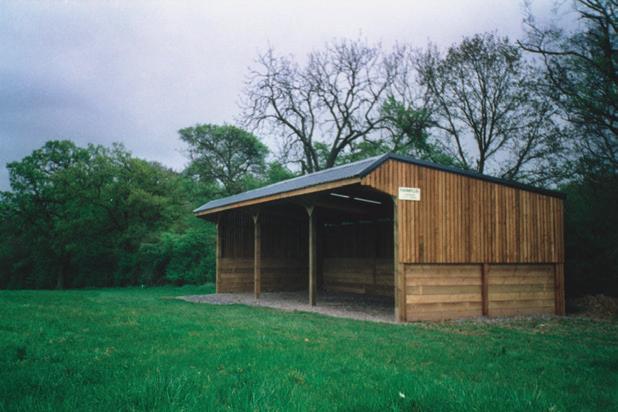

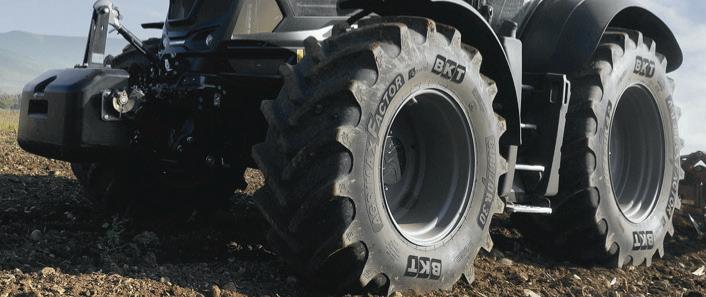

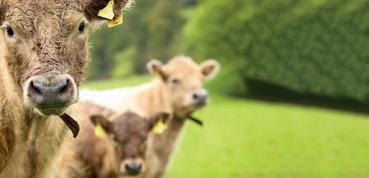







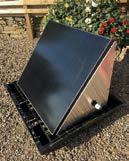

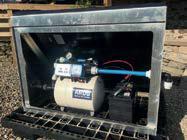
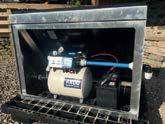
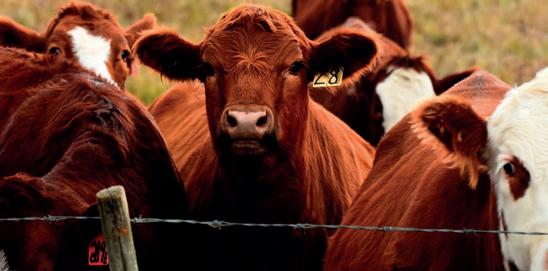













We have worked with farms, estates and forestry managers across Scotland and North of England for over 15 years.
We supply both old heritage varieties of trees and more mainstream varieties suitable for Scottish growing conditions.
We advise on planting fruit as part of farm diversification and ecotourism, as well as cider and juice making.

















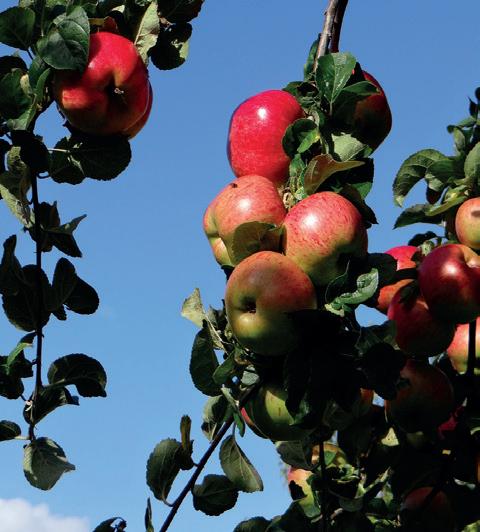



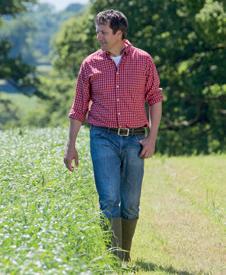







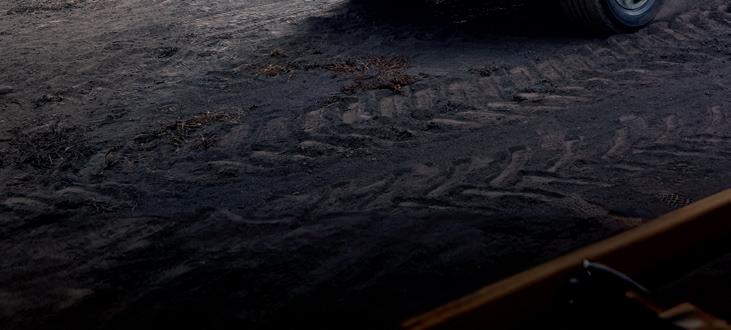
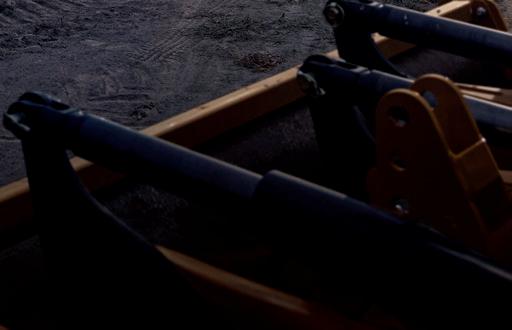
NFU Scotland members who meet the eligibility requirements are now able to take advantage of a discount on an Award-Winning Isuzu D-Max pick-up. This discount can be used in conjunction with any offers from your local dealership. For more information, visit the member discounts section on the NFU Scotland website or contact NFU Scotland Membership Services on 0131 472 4000 for complete details.



